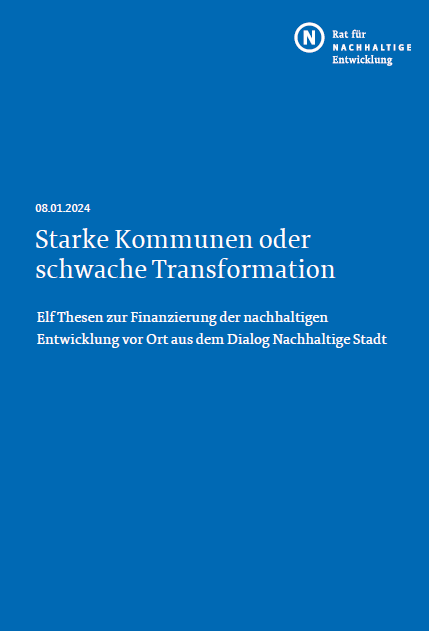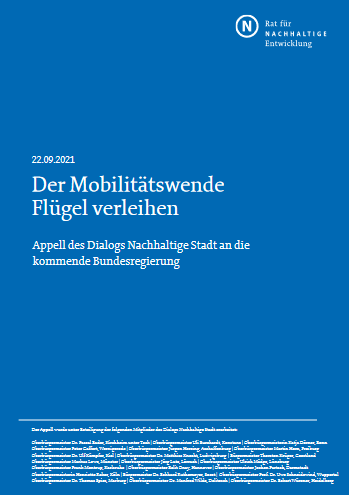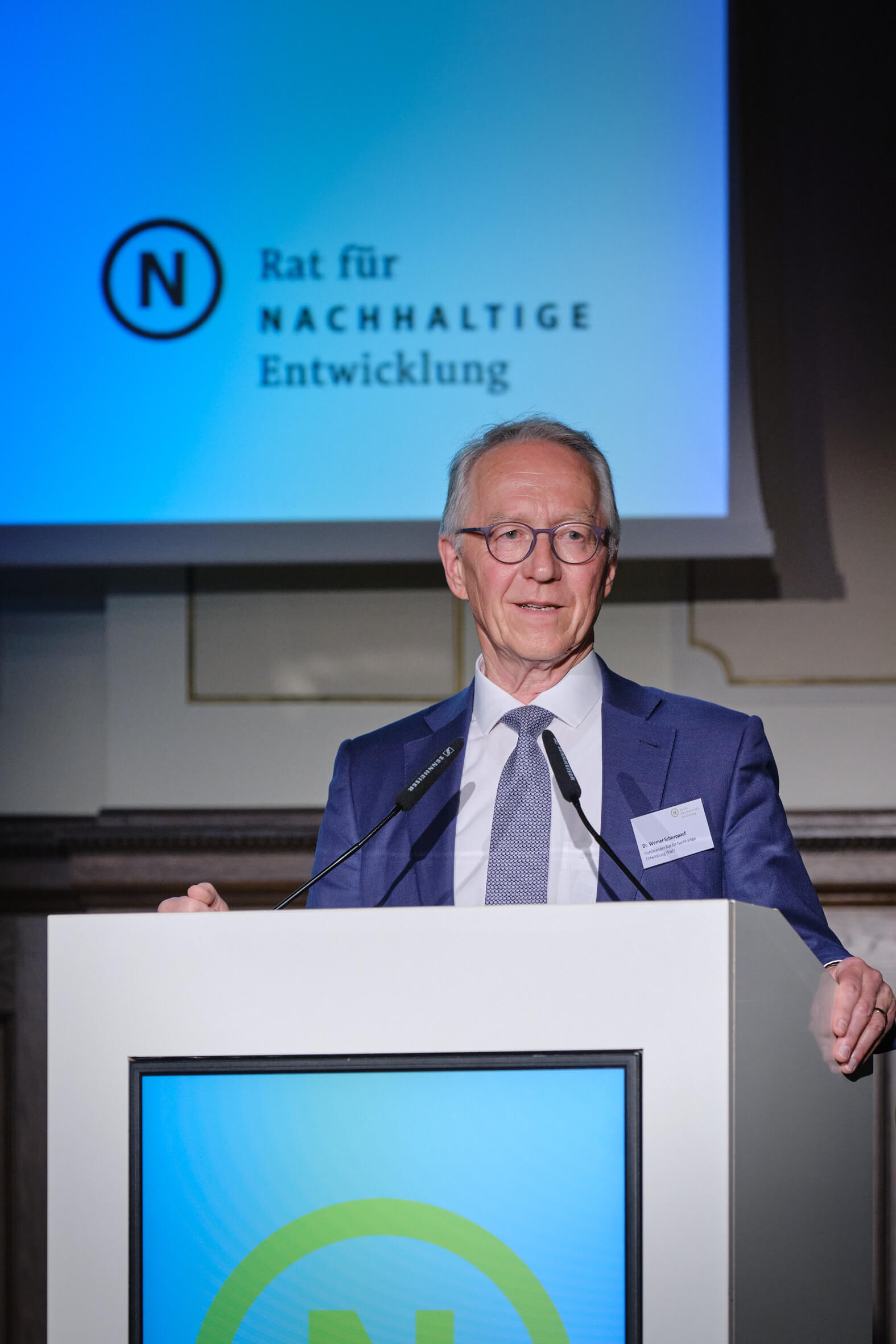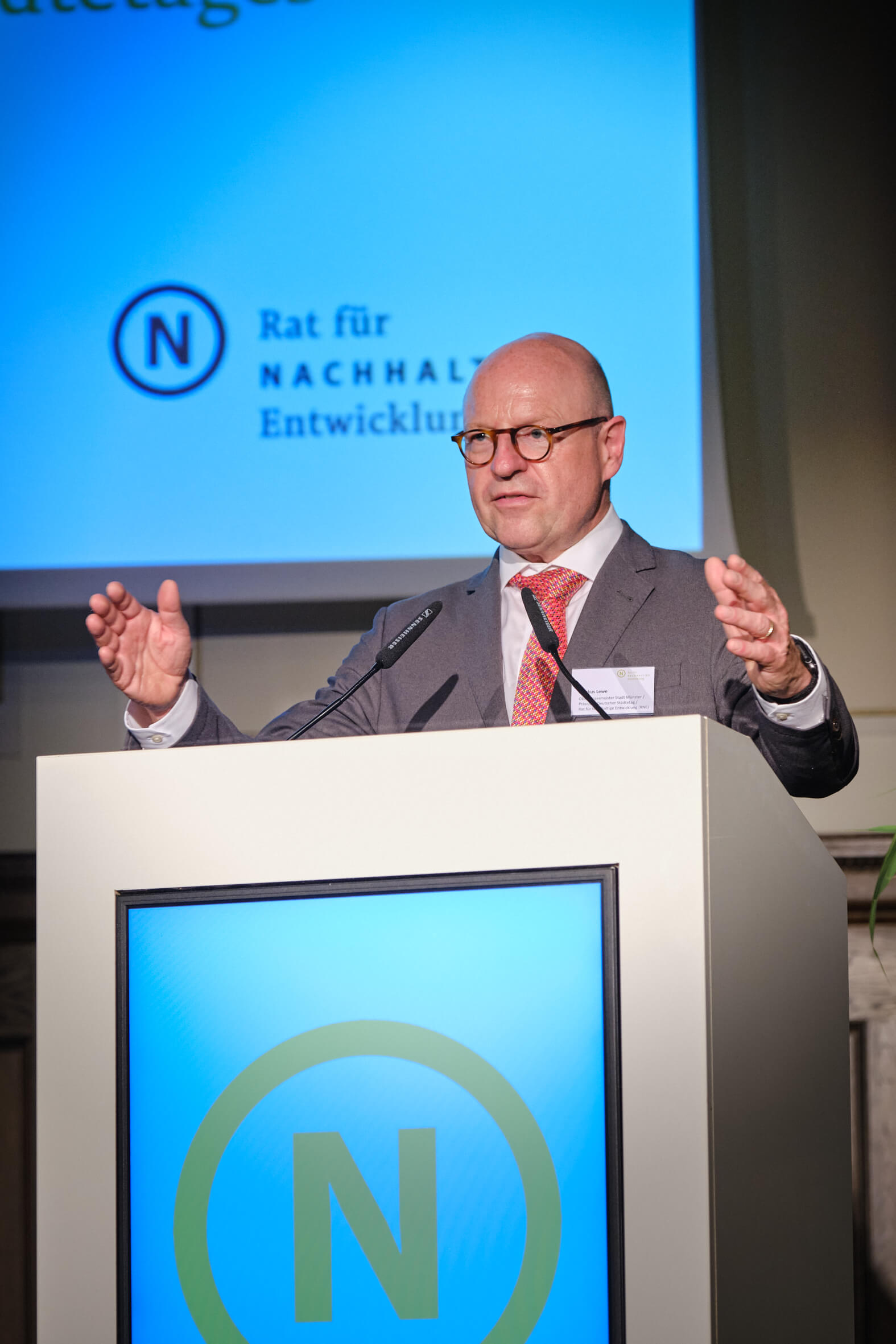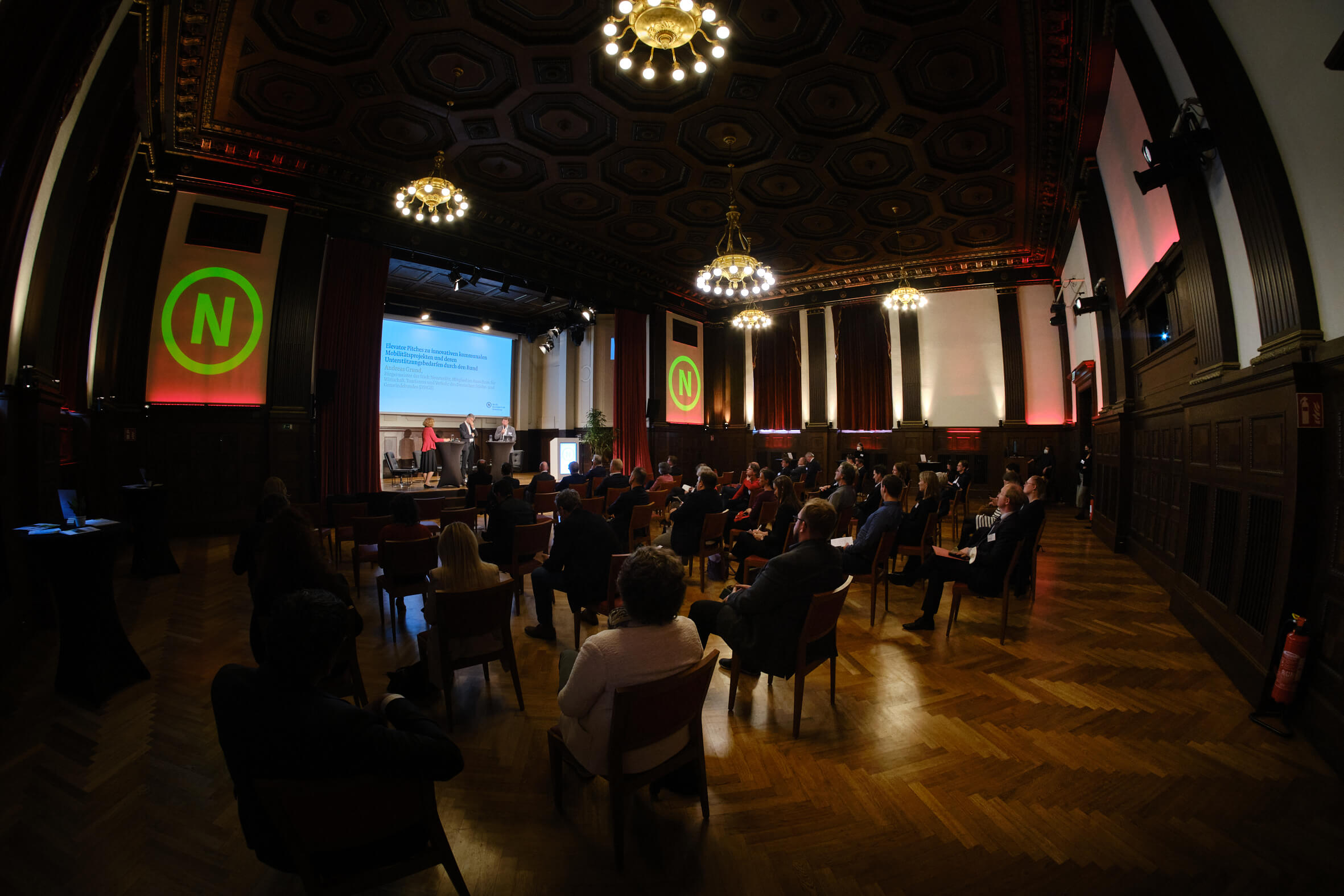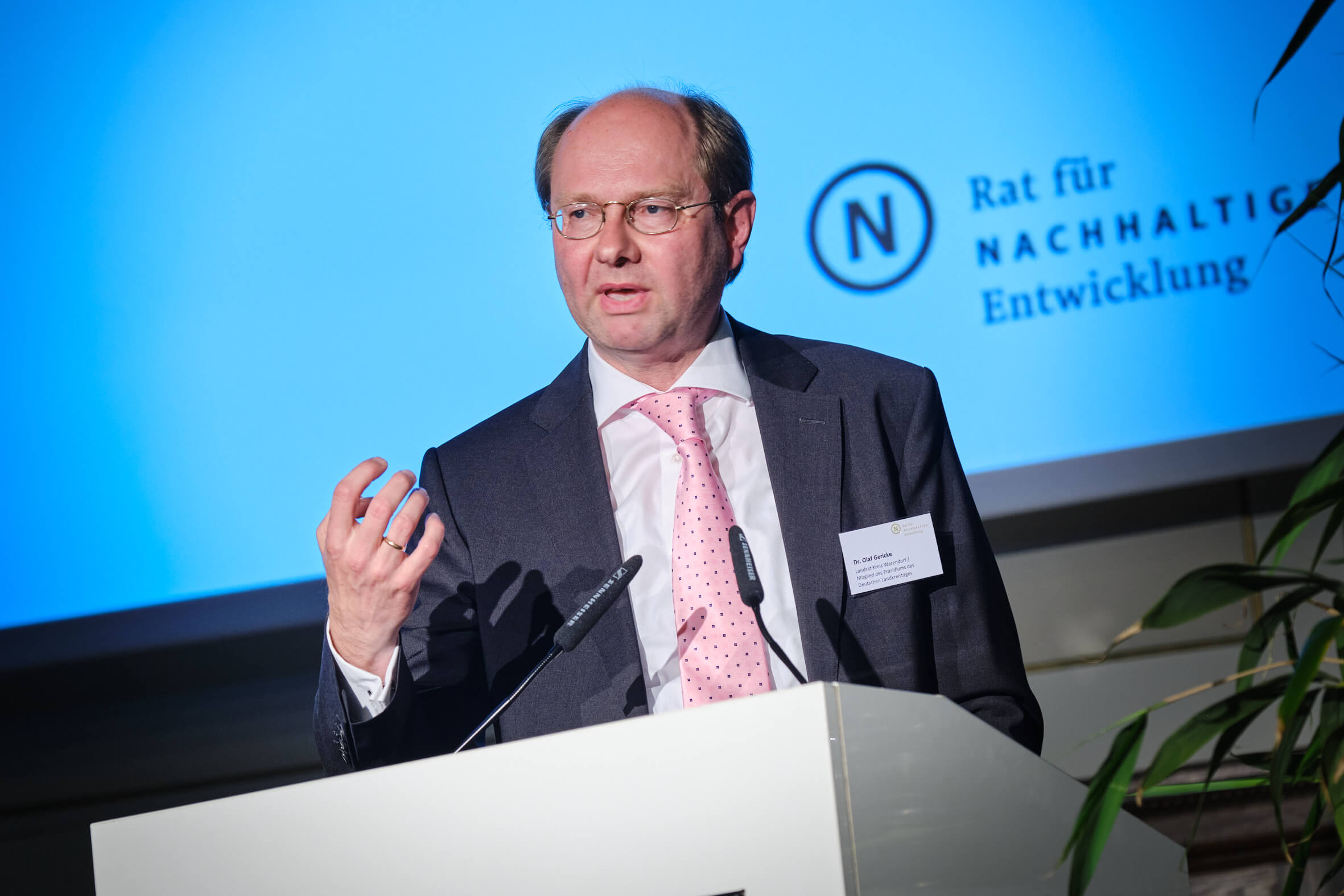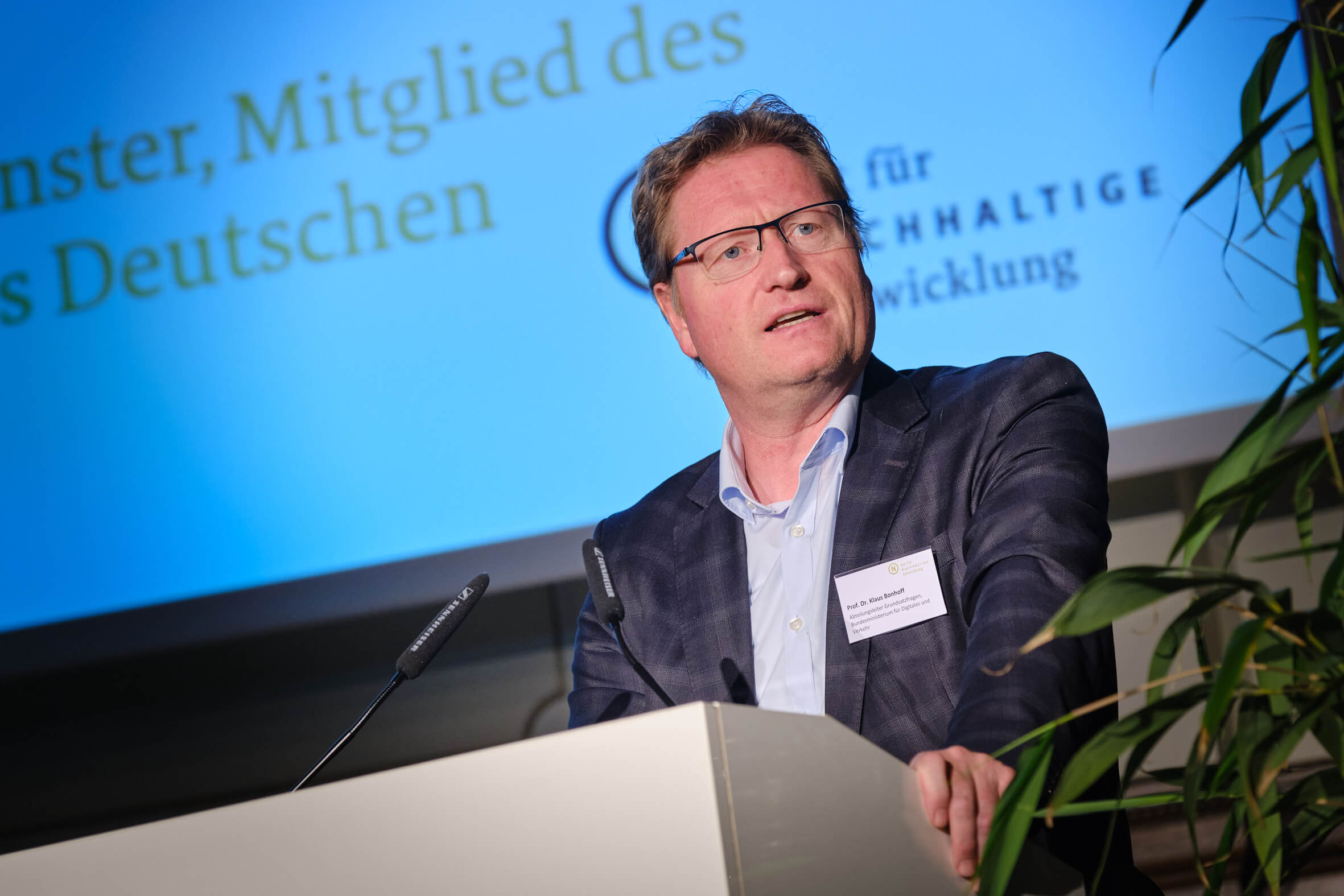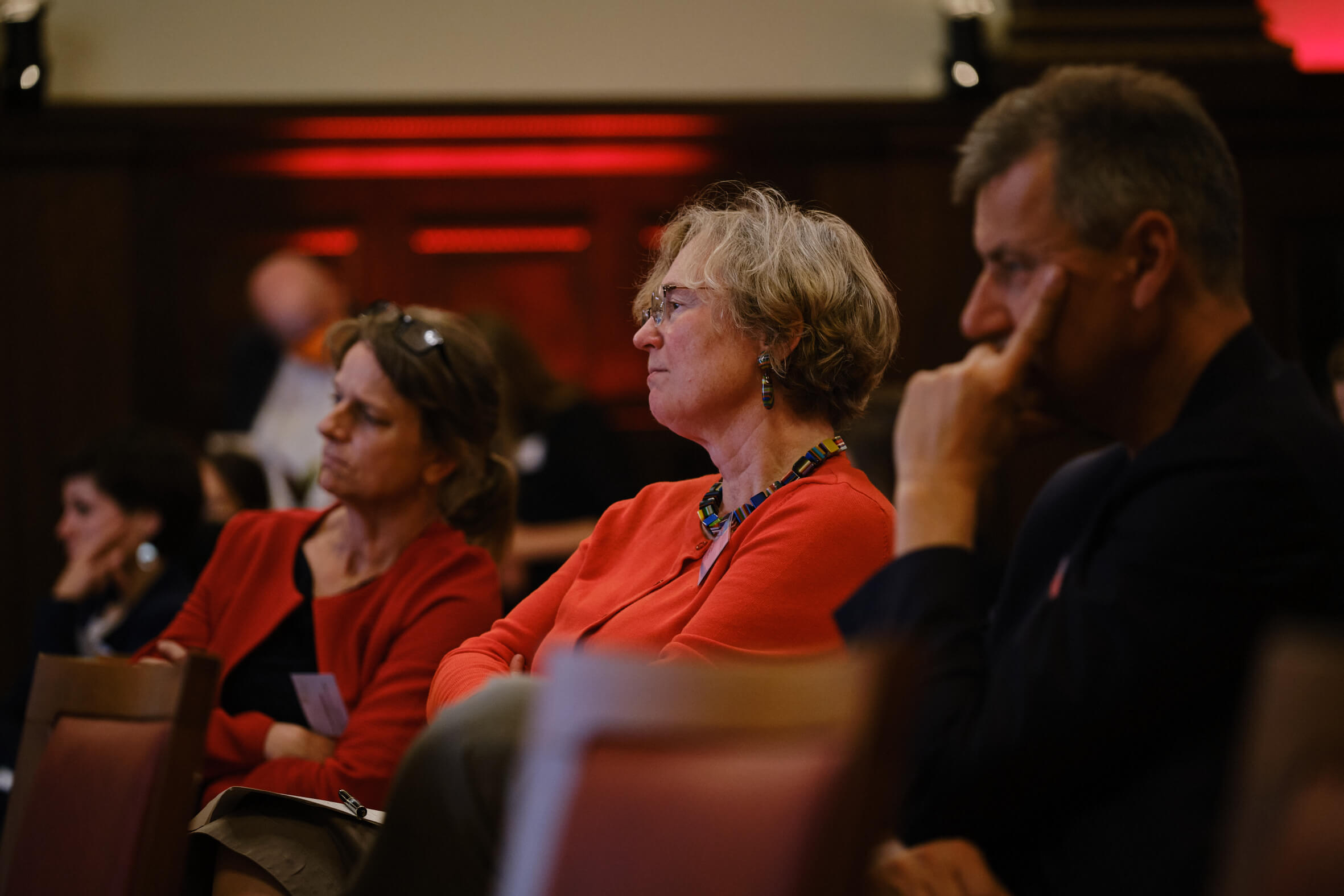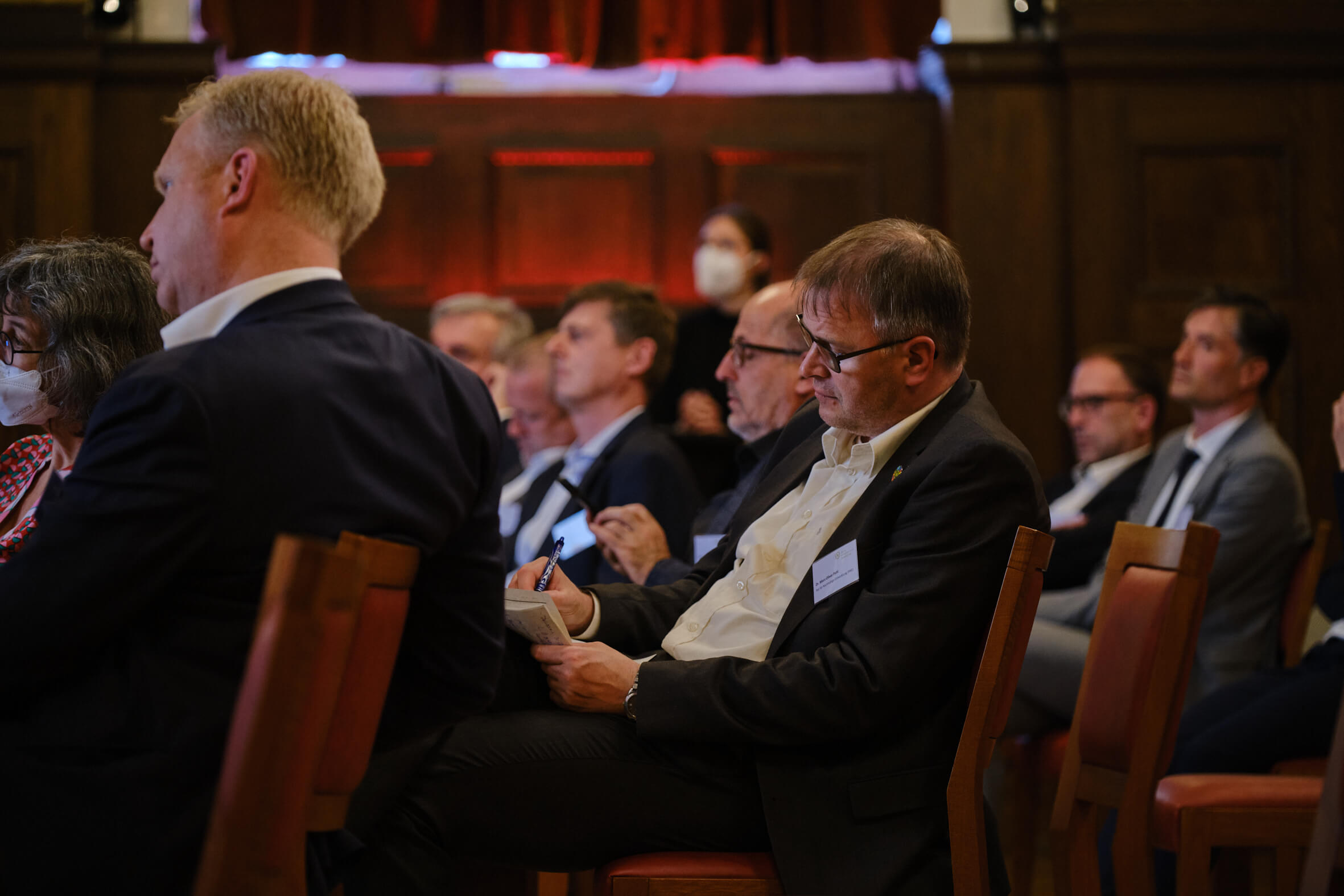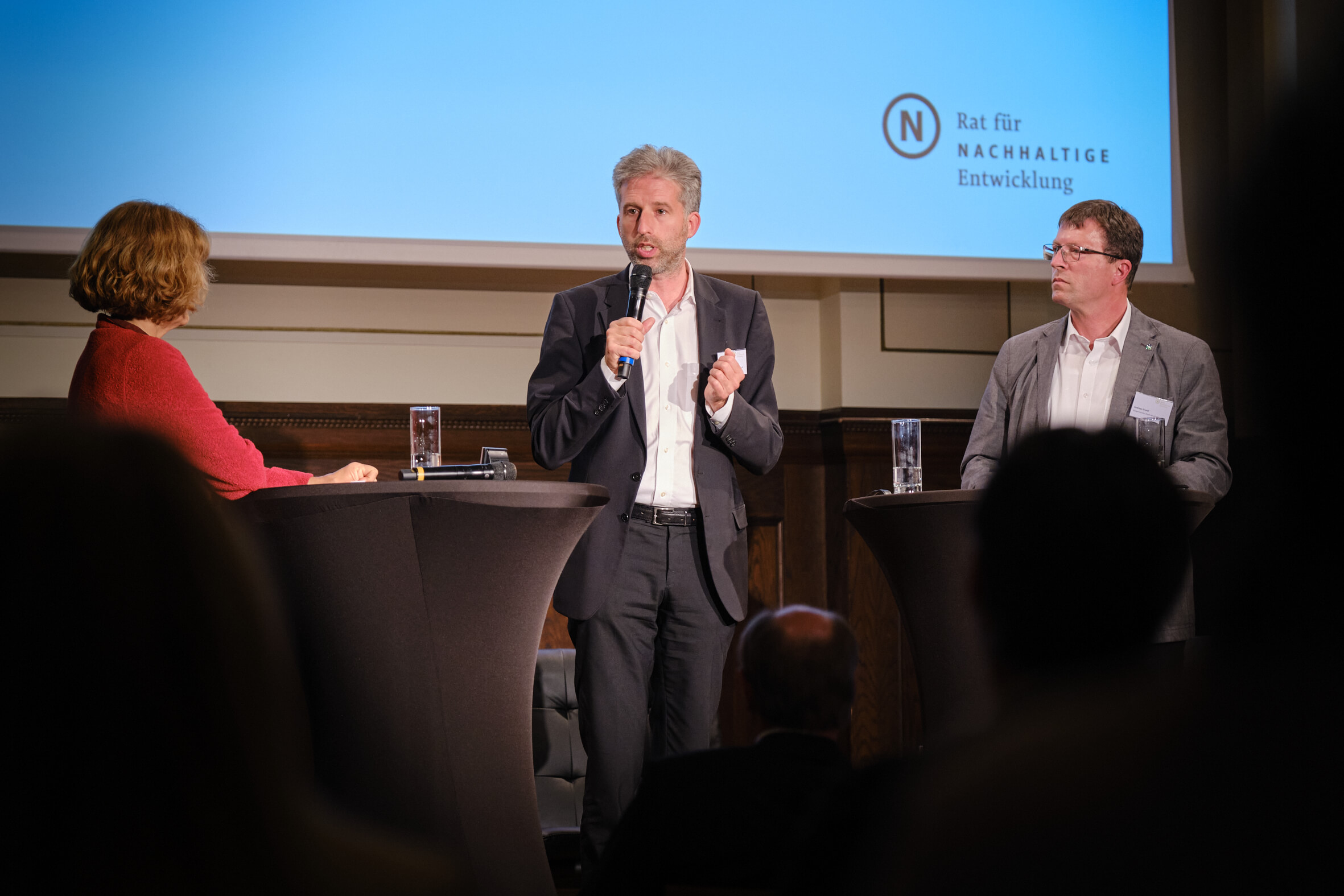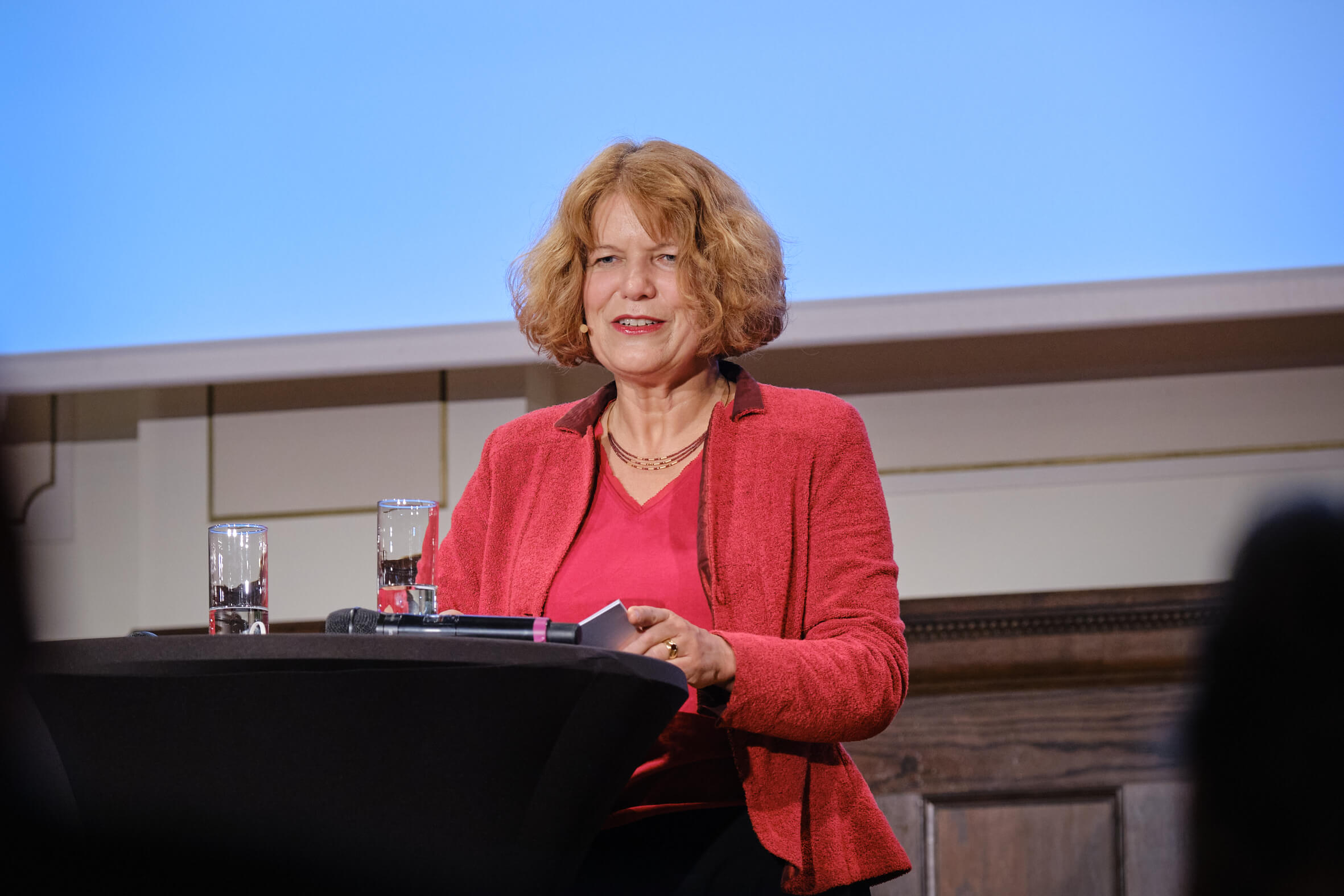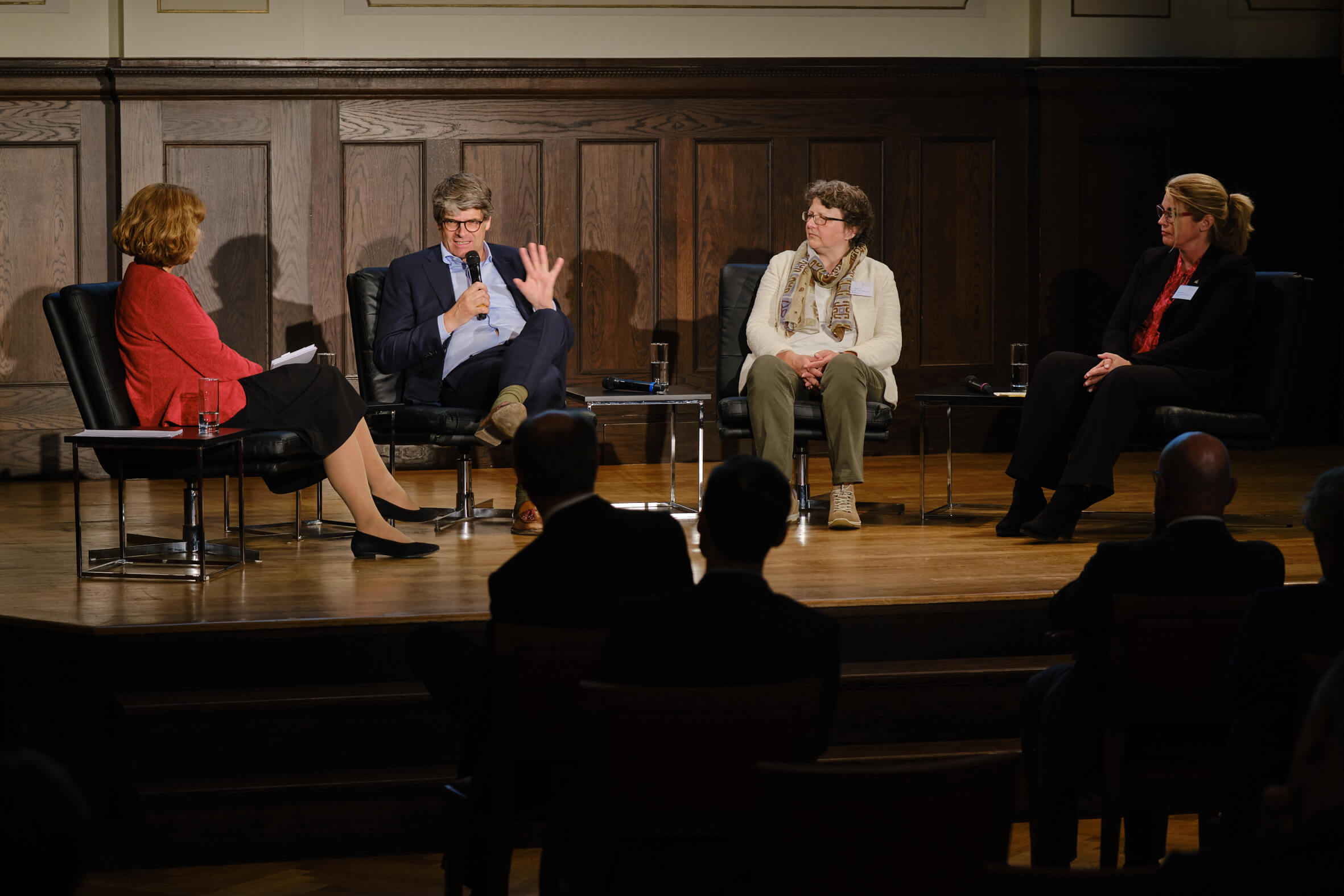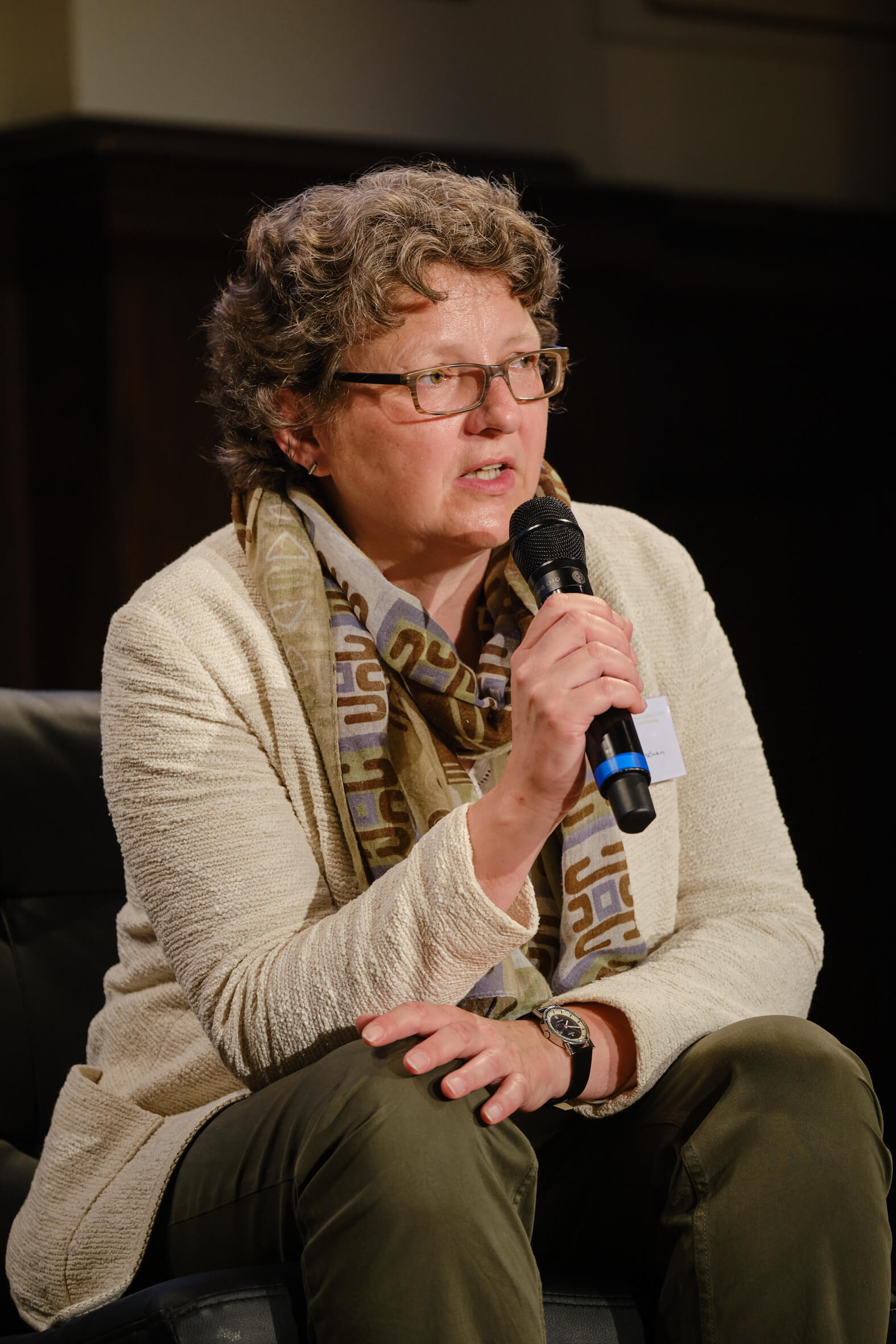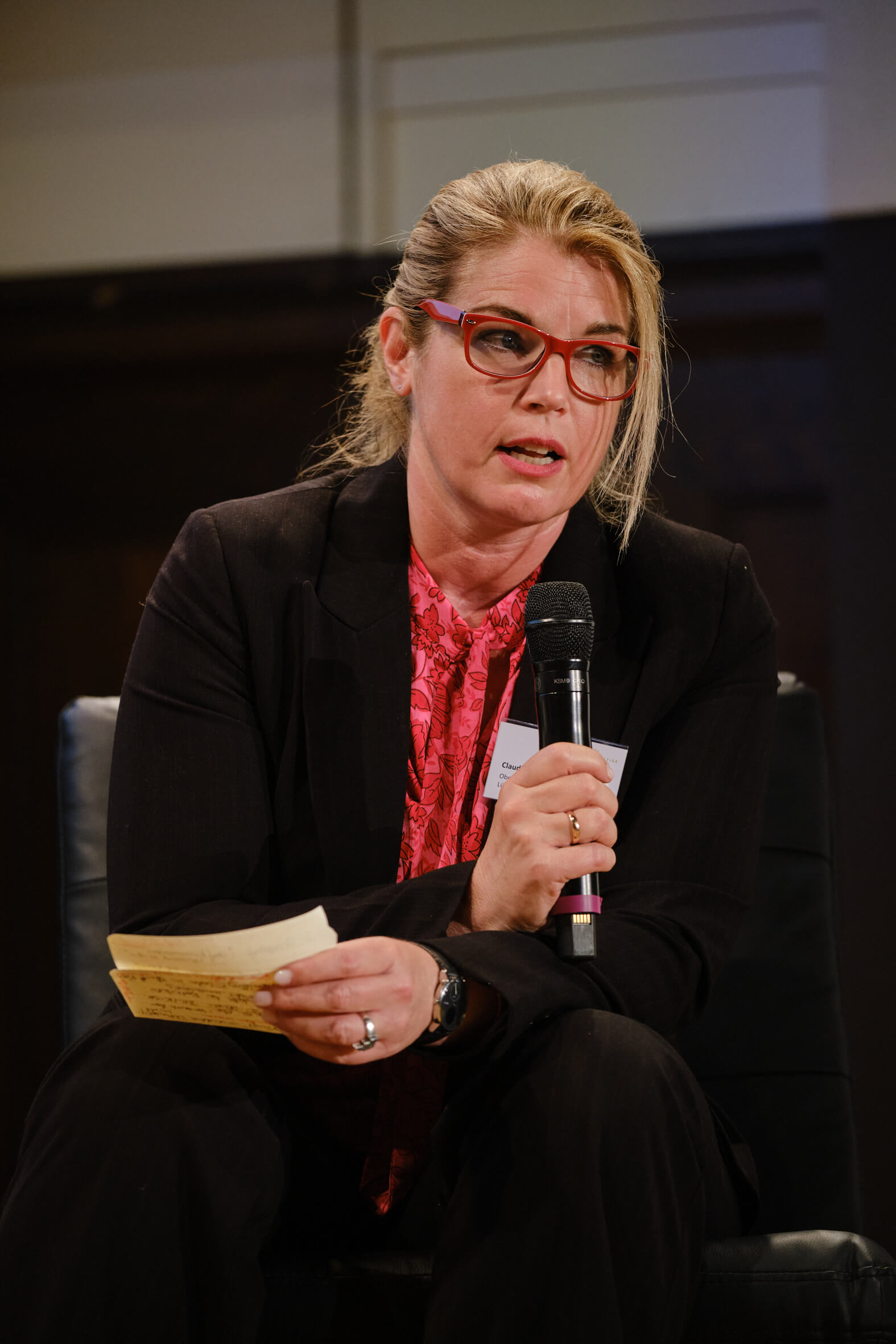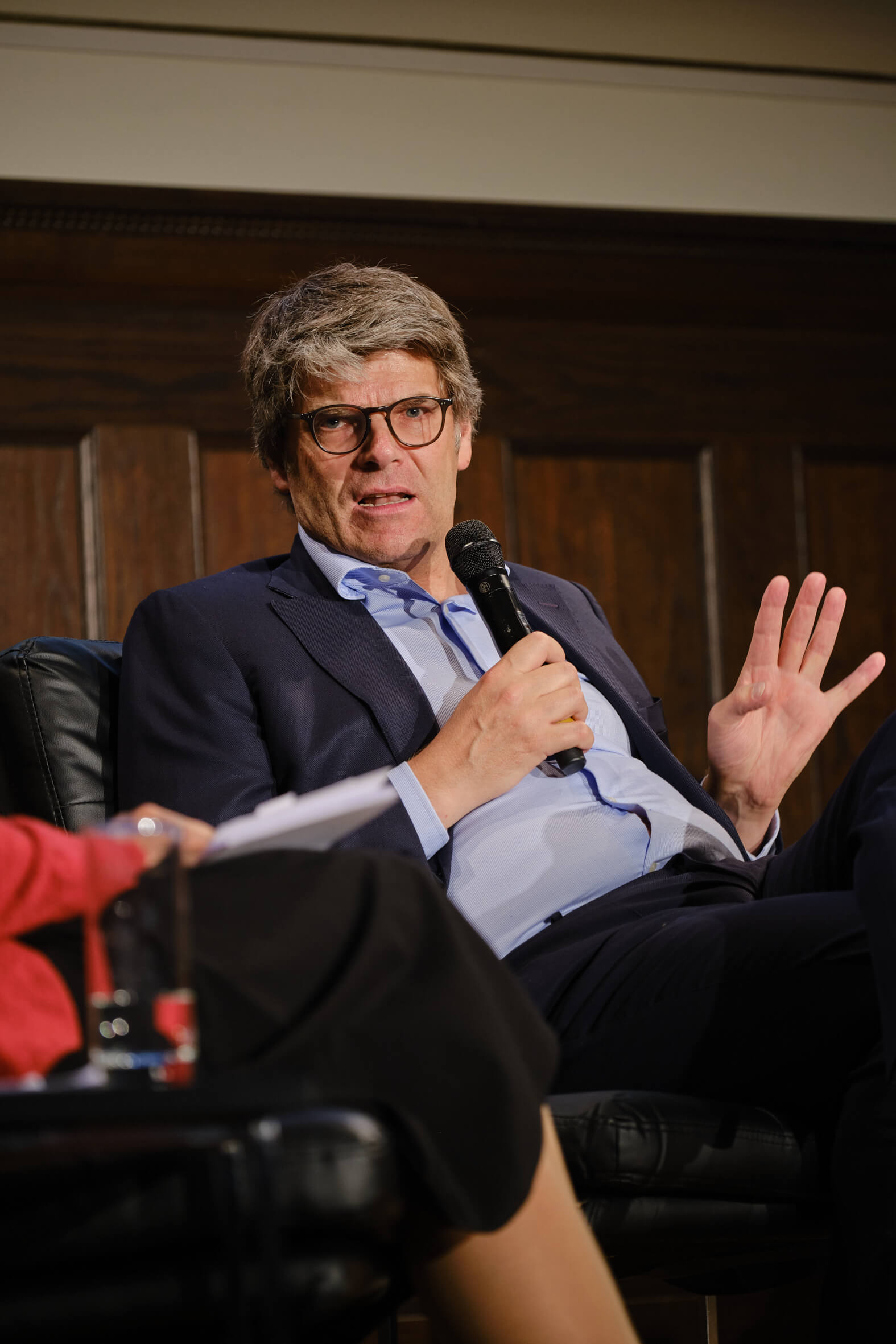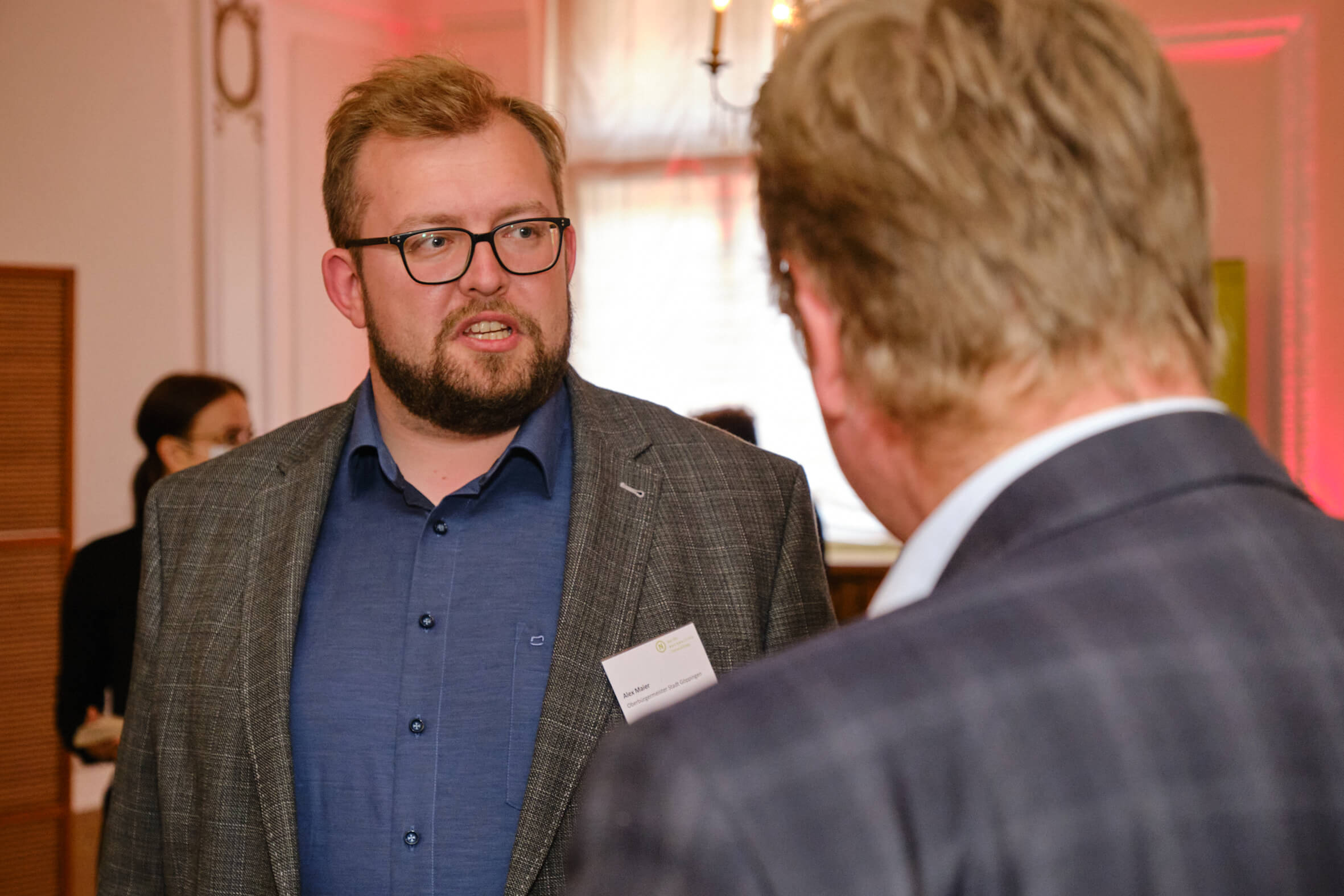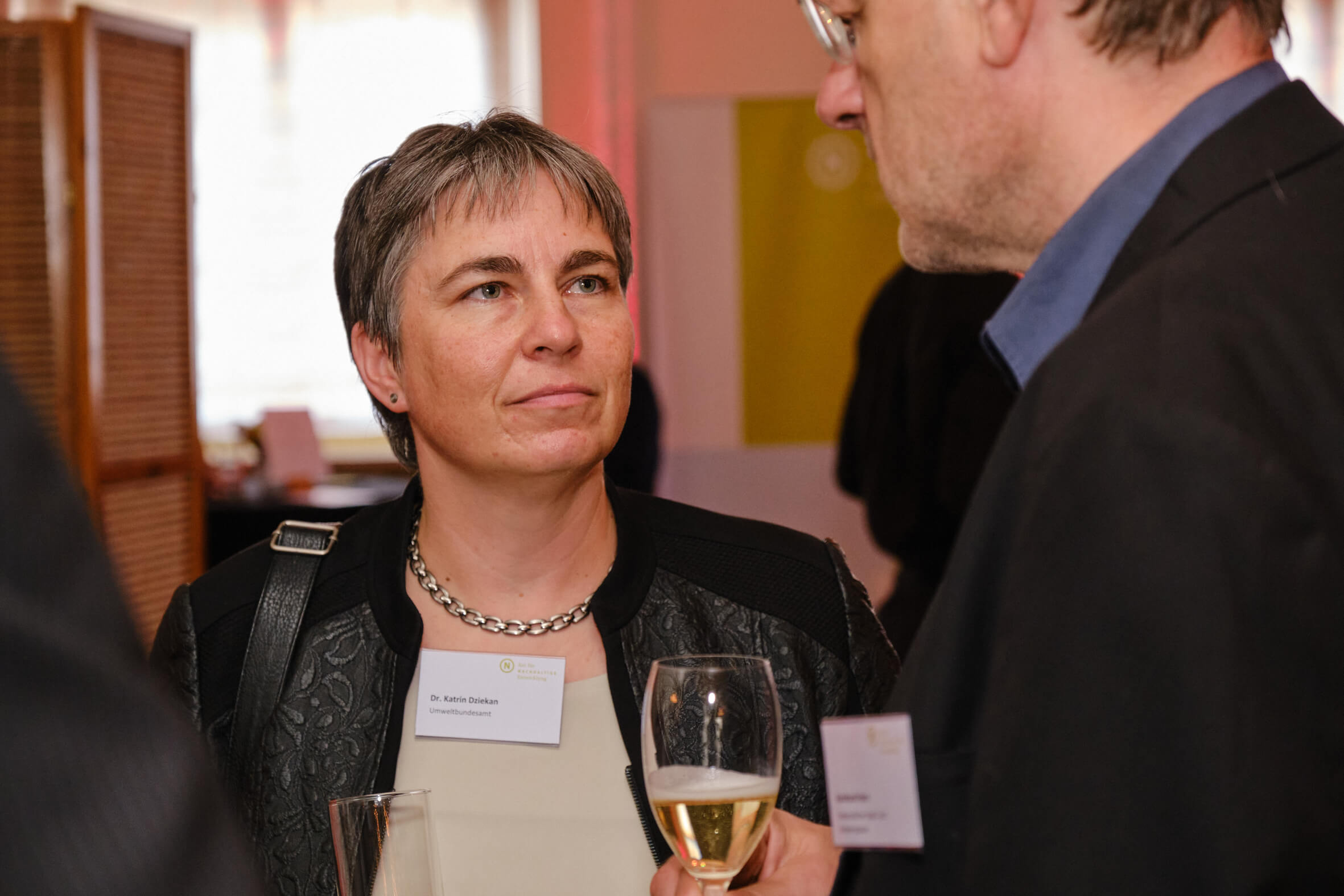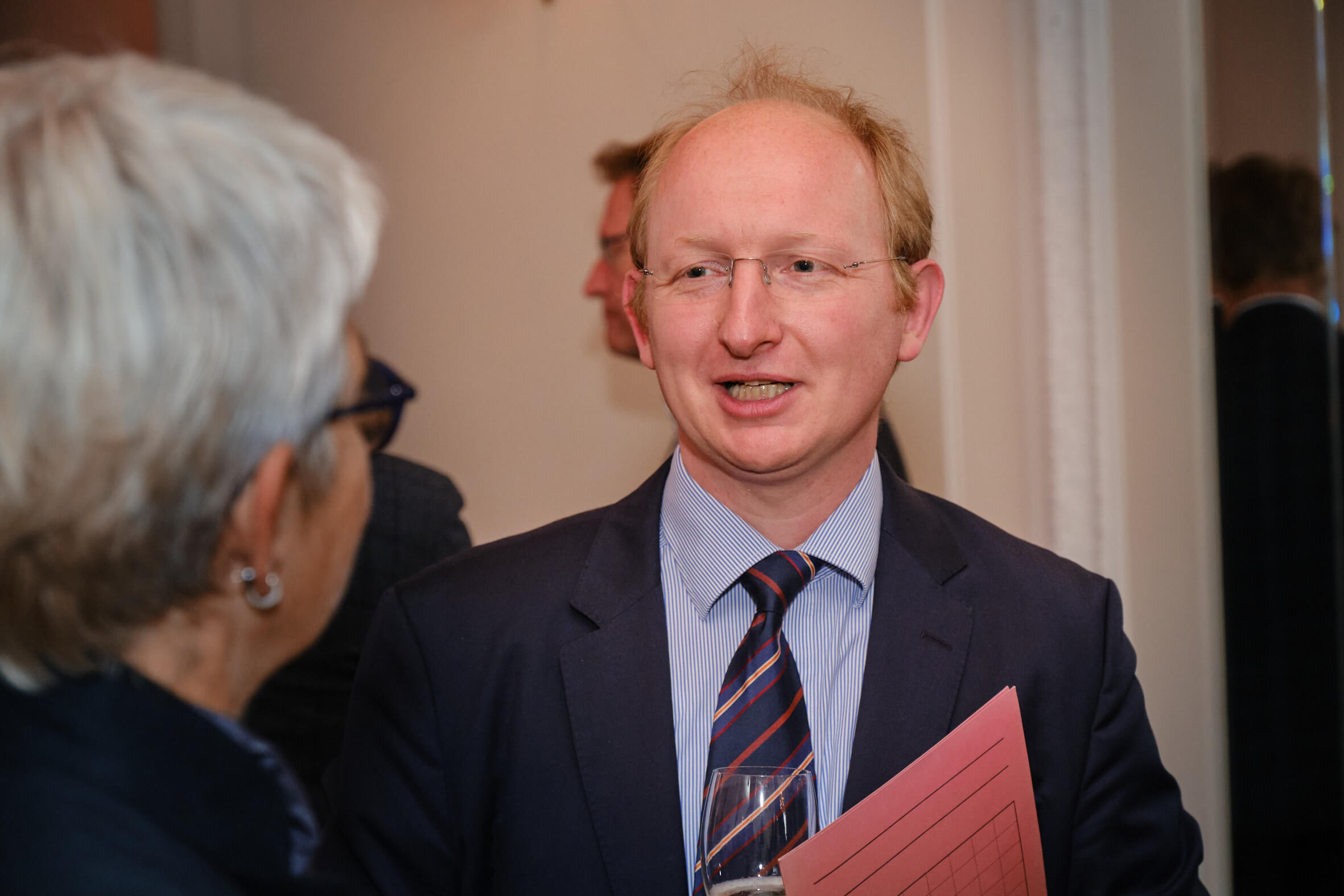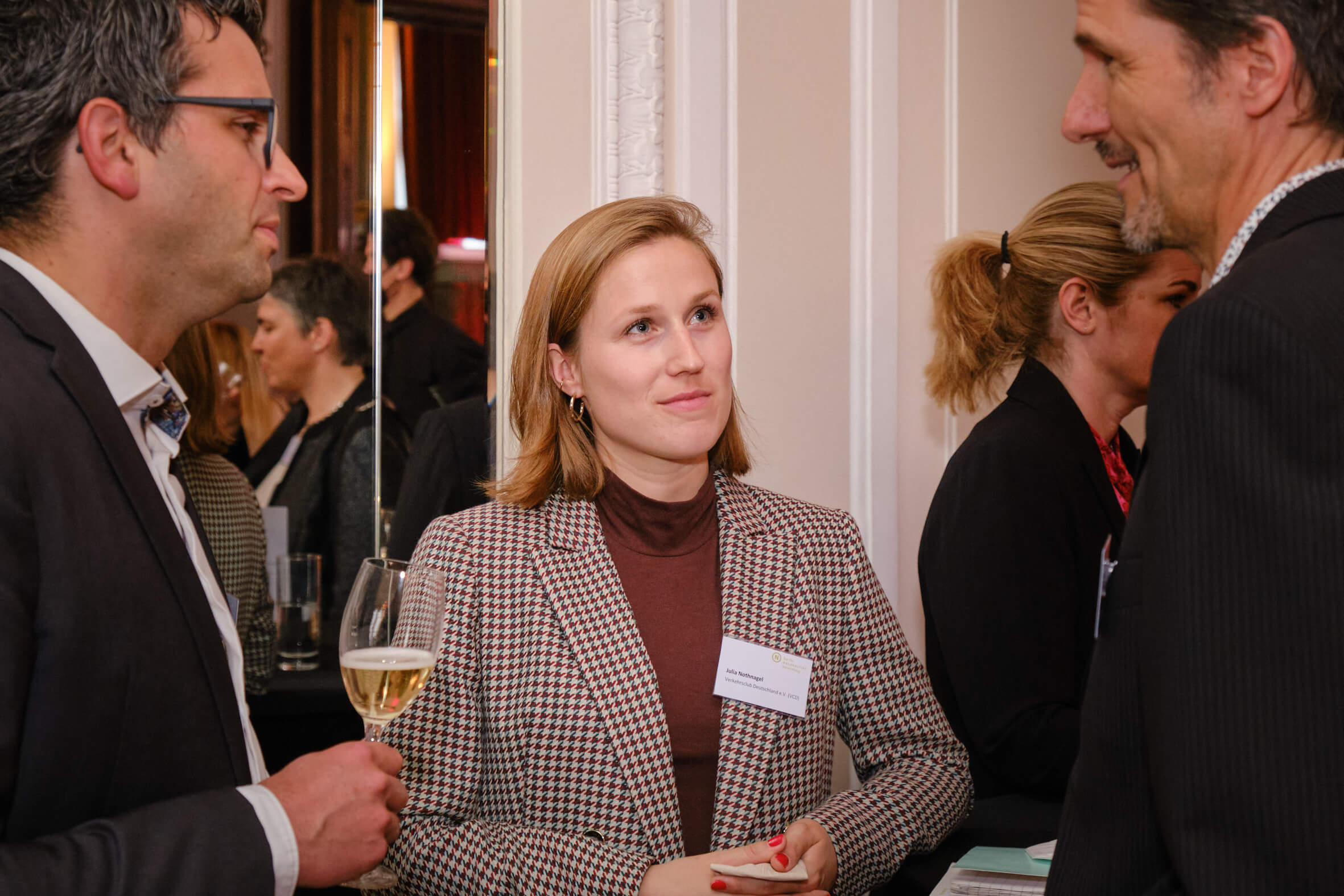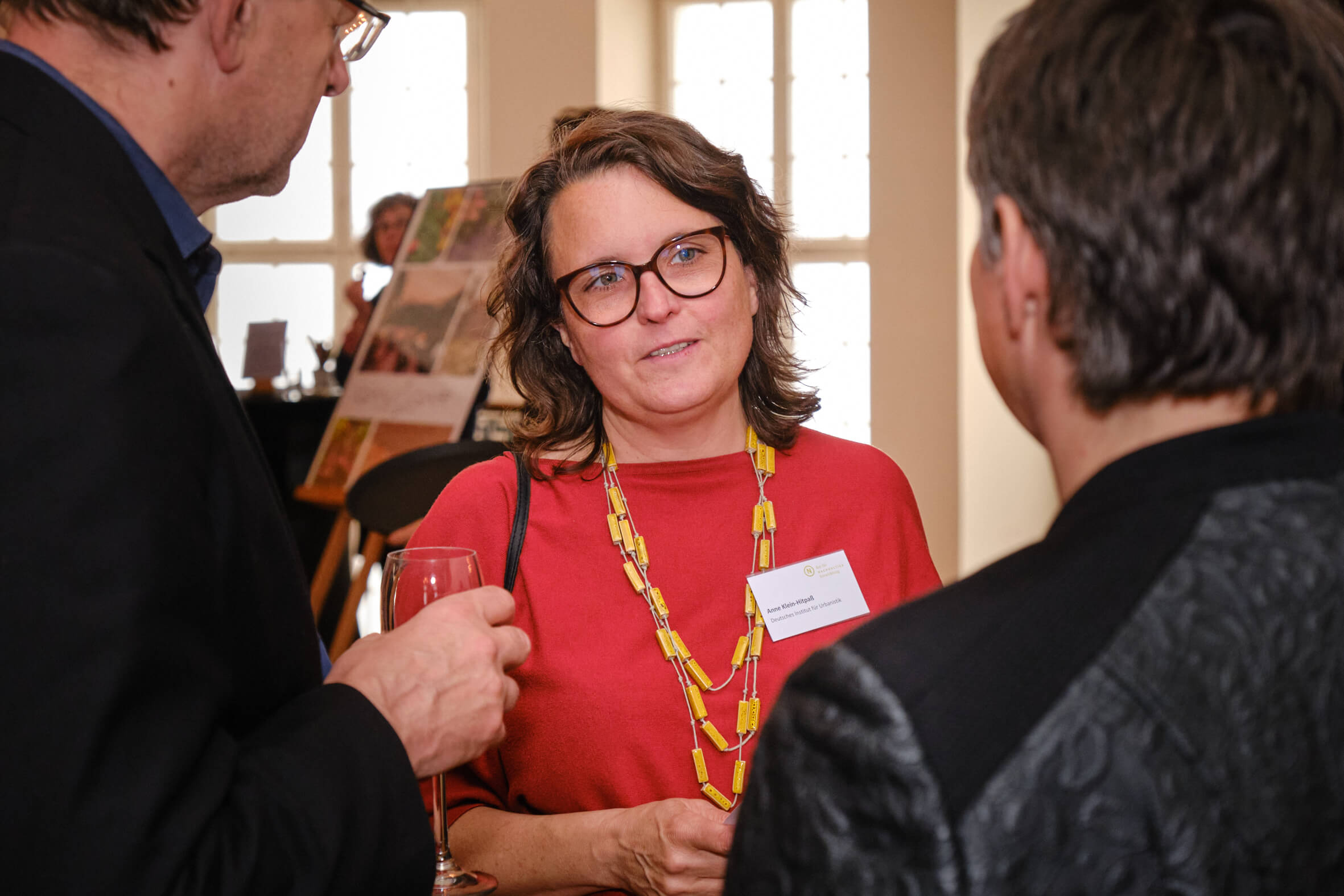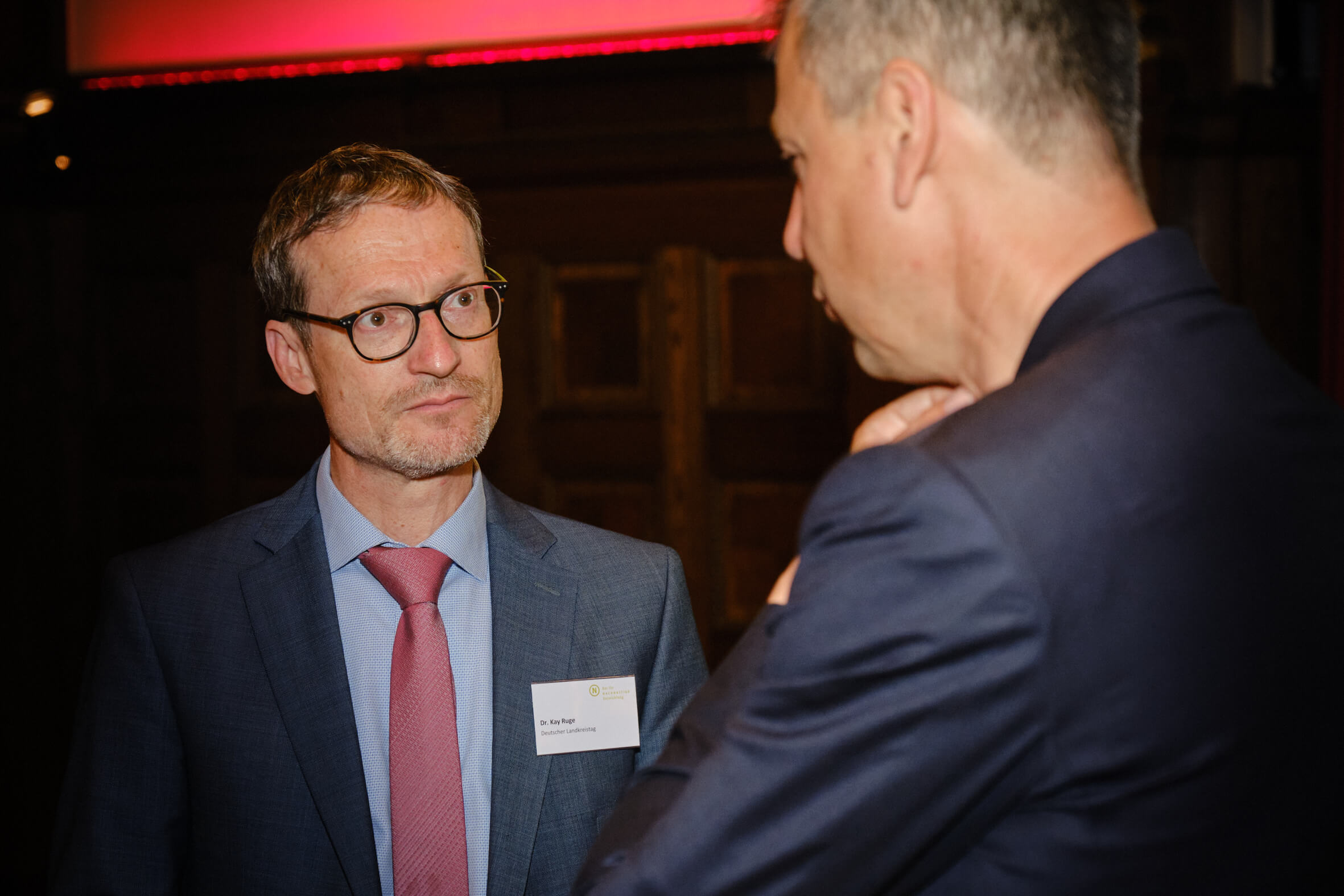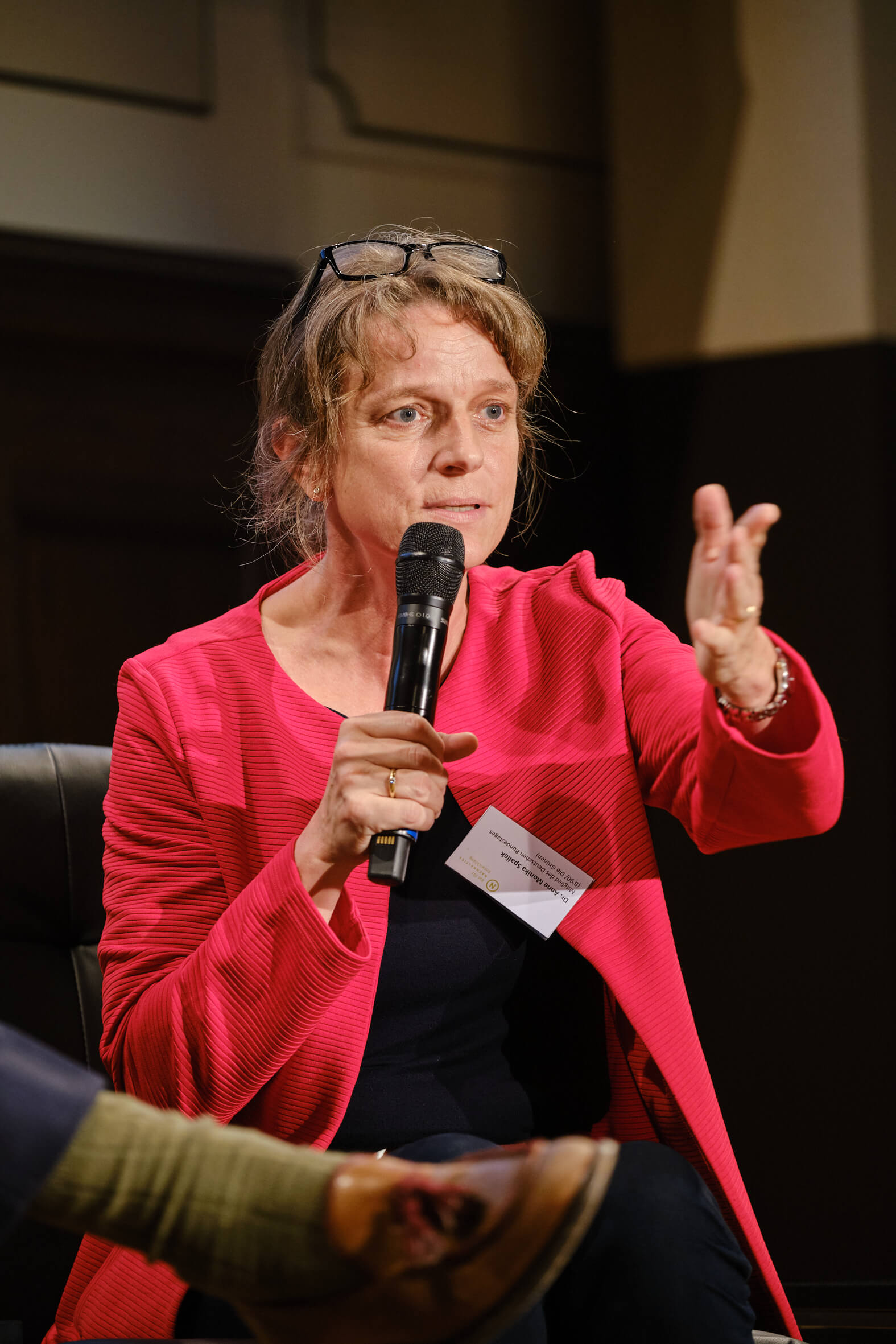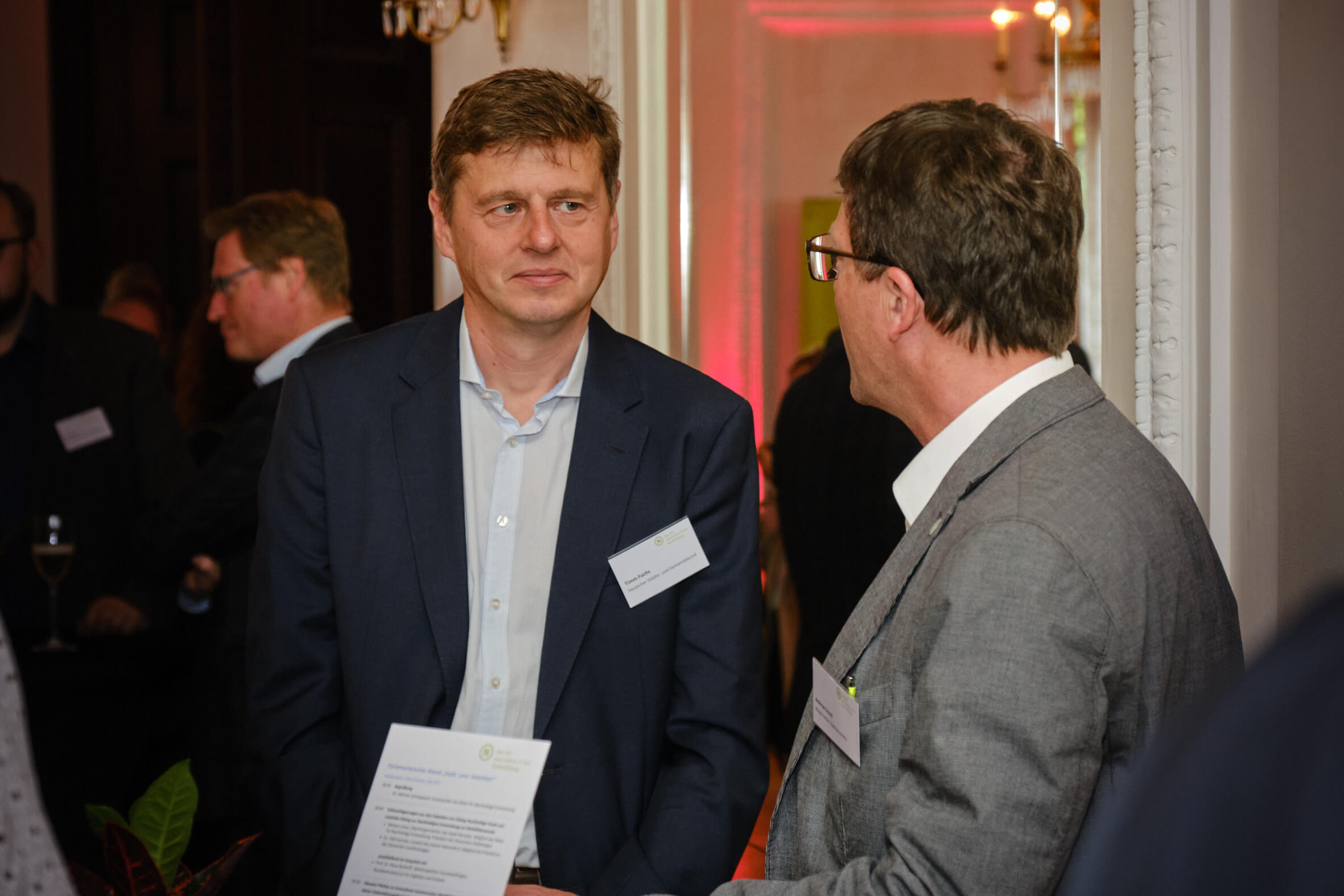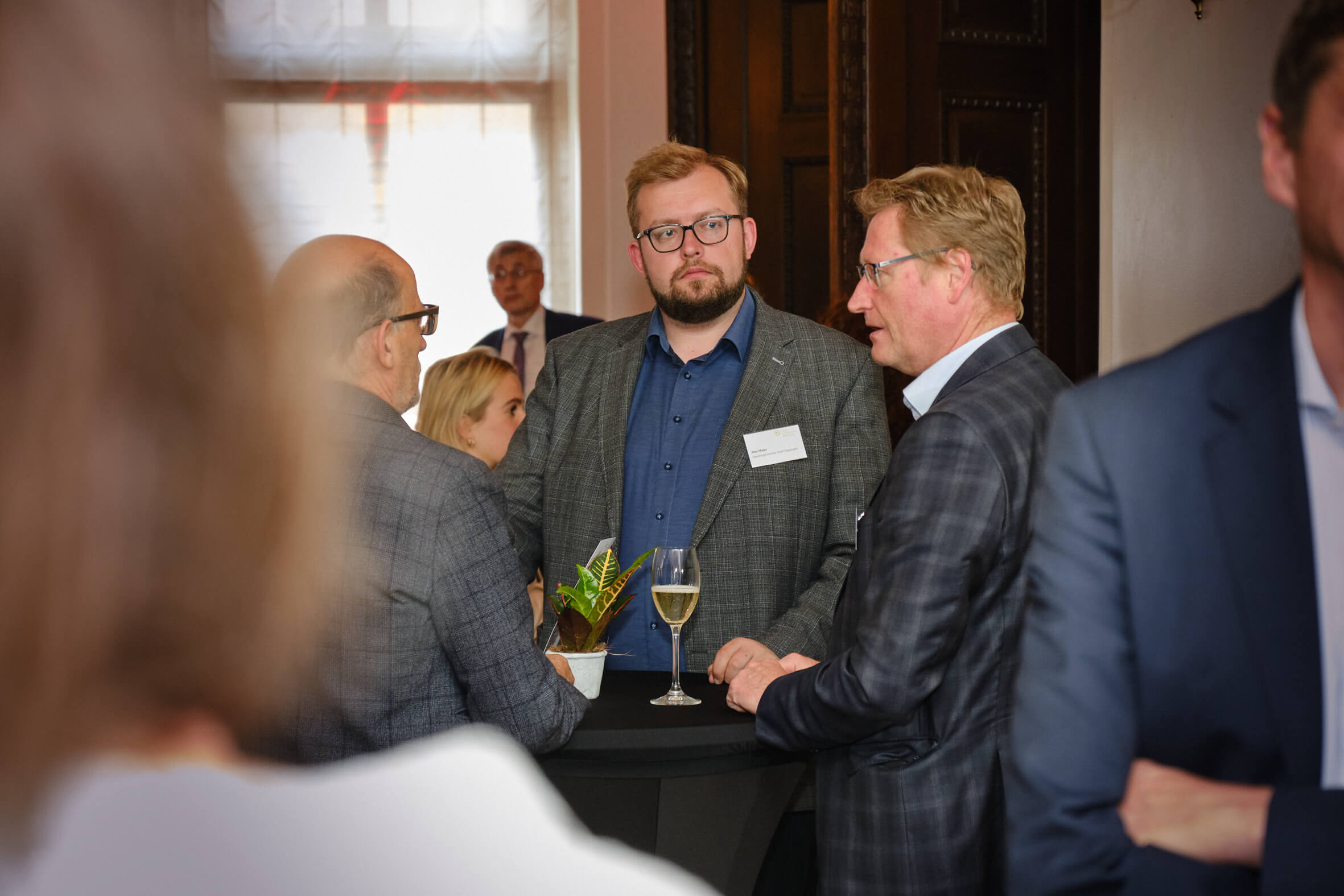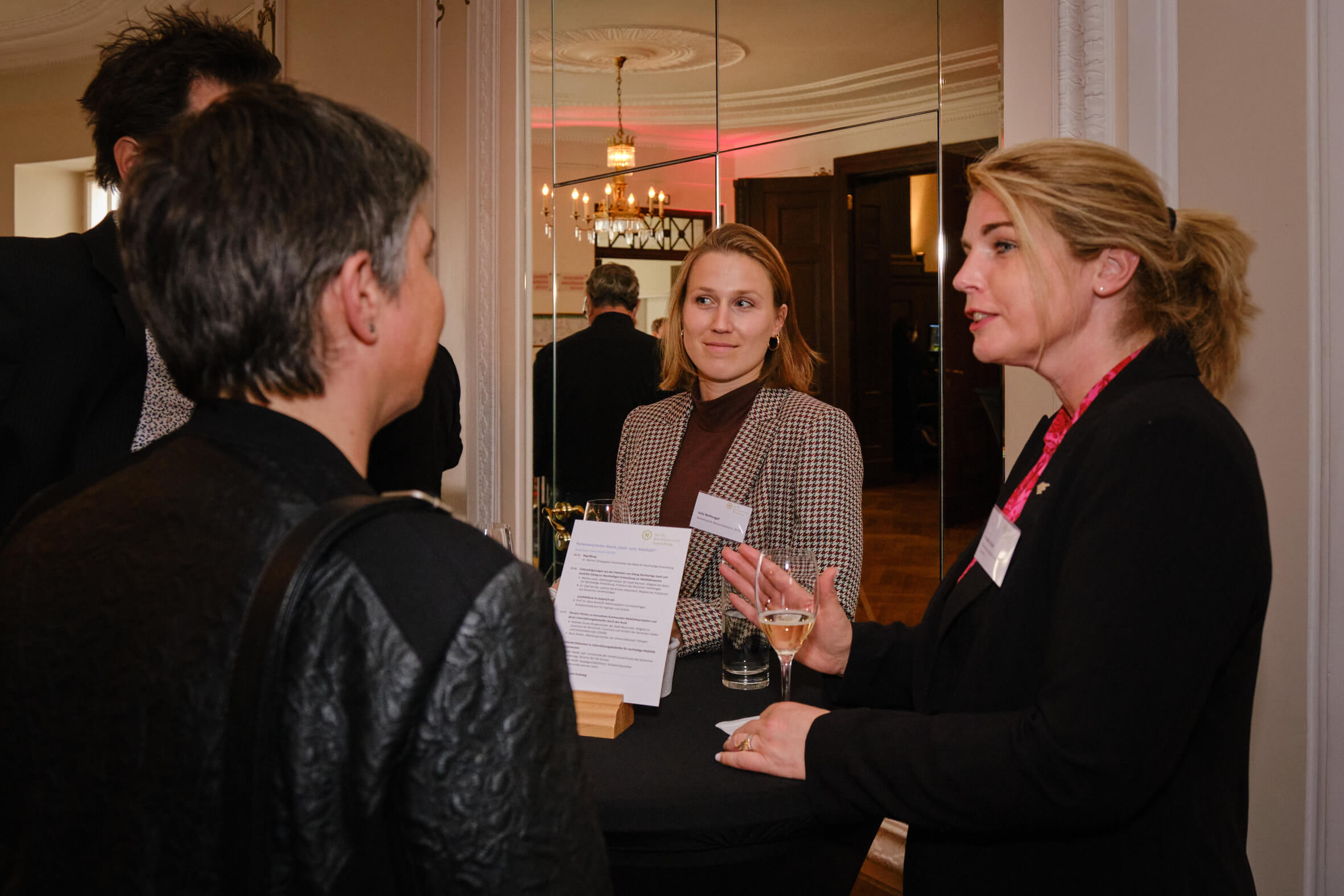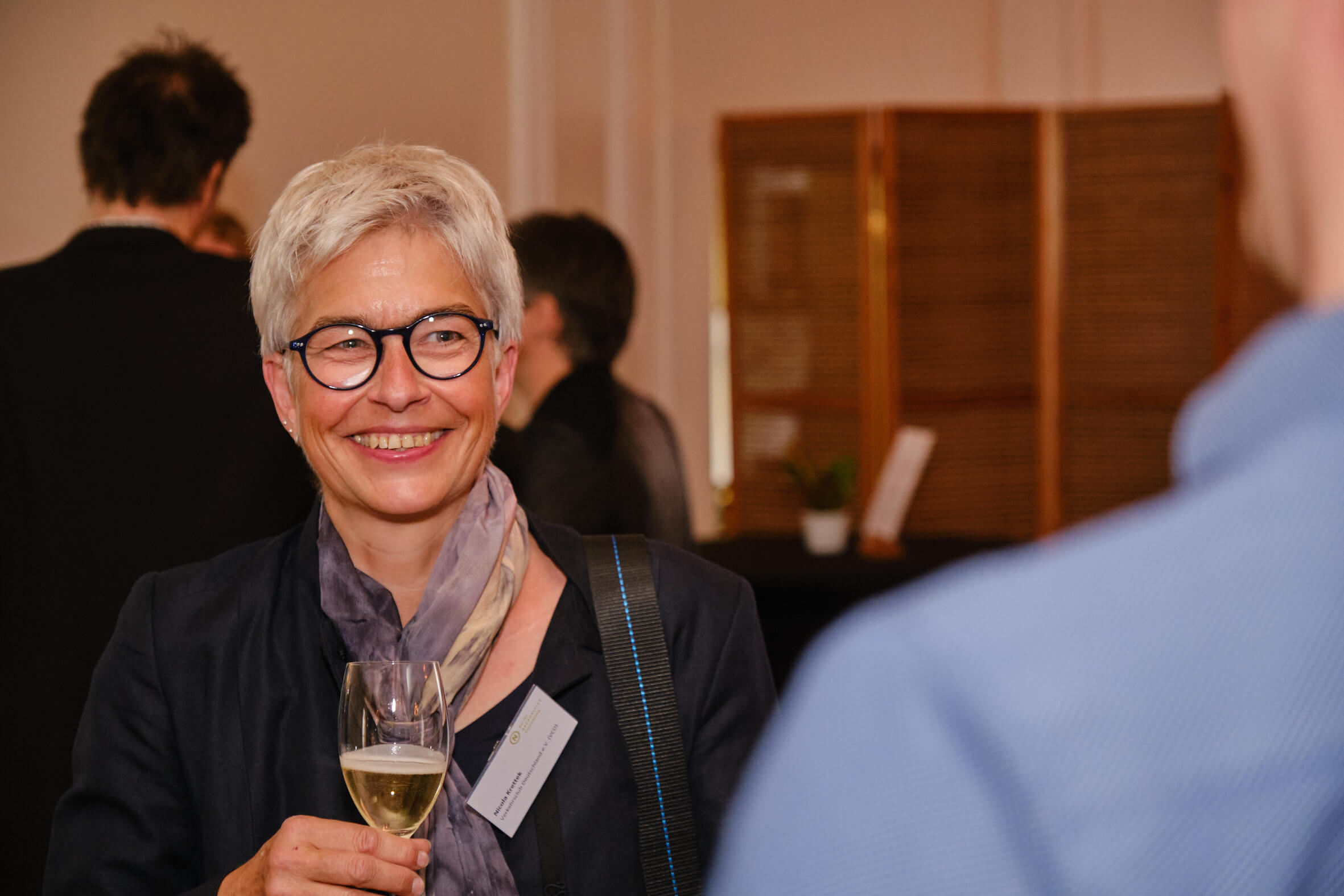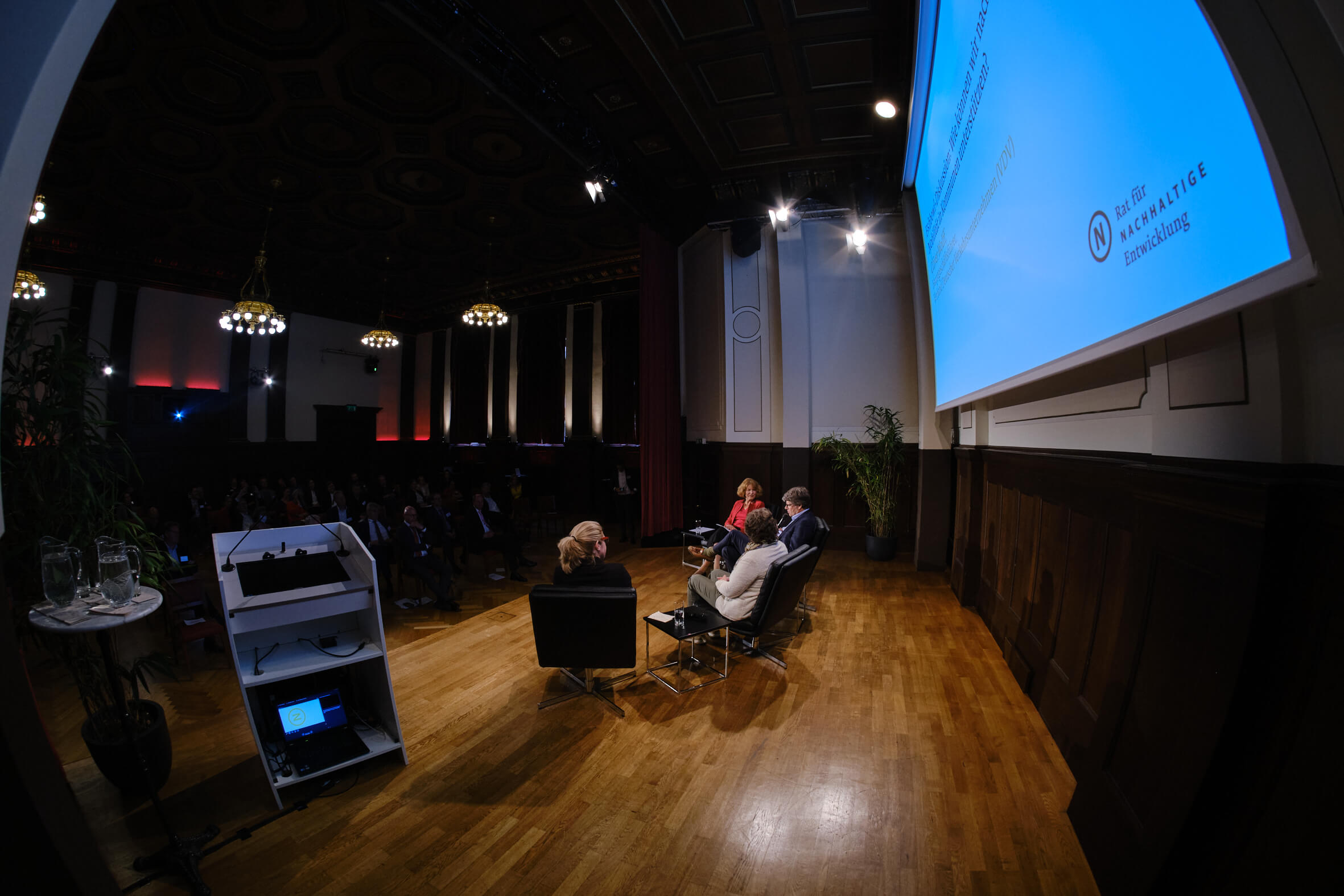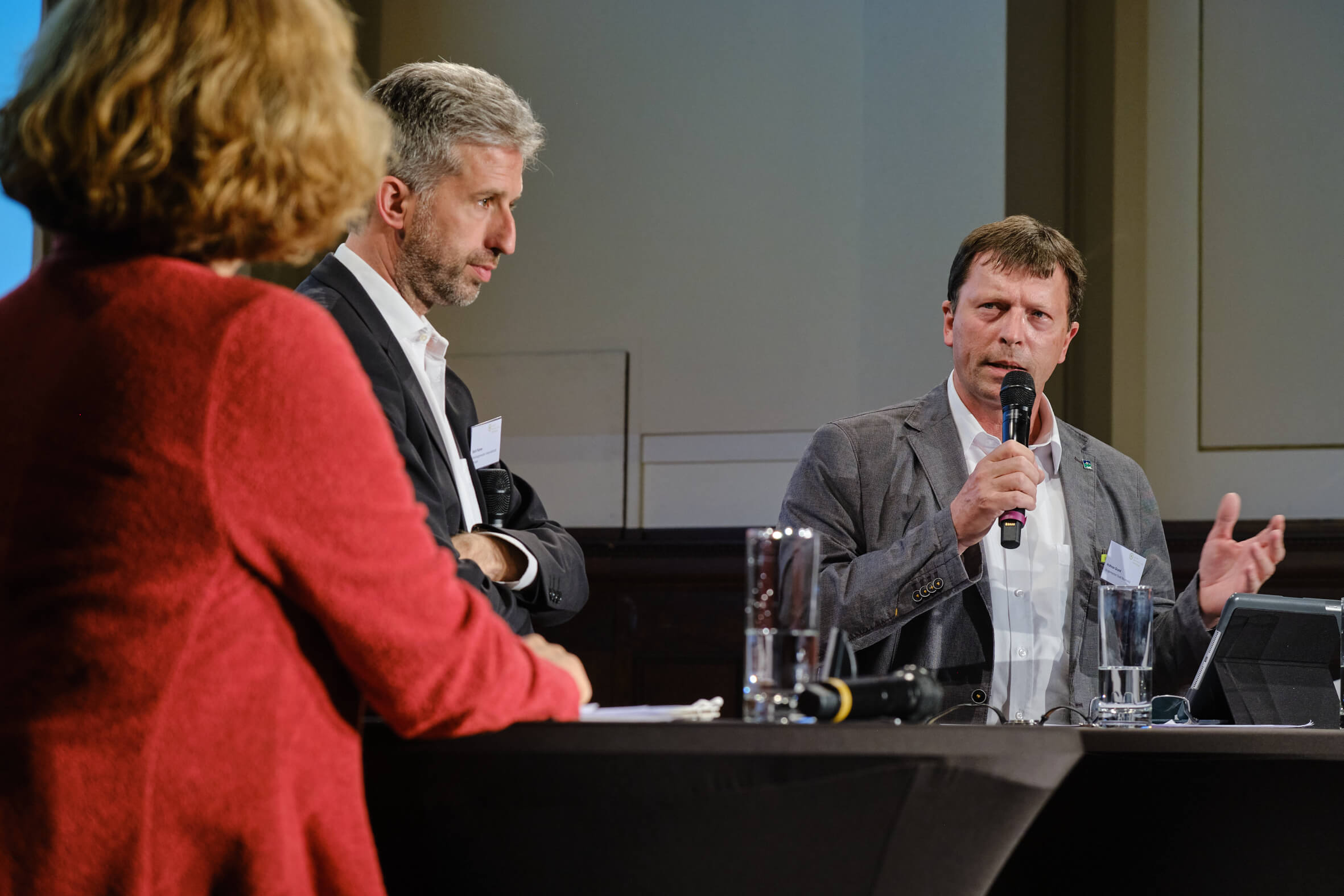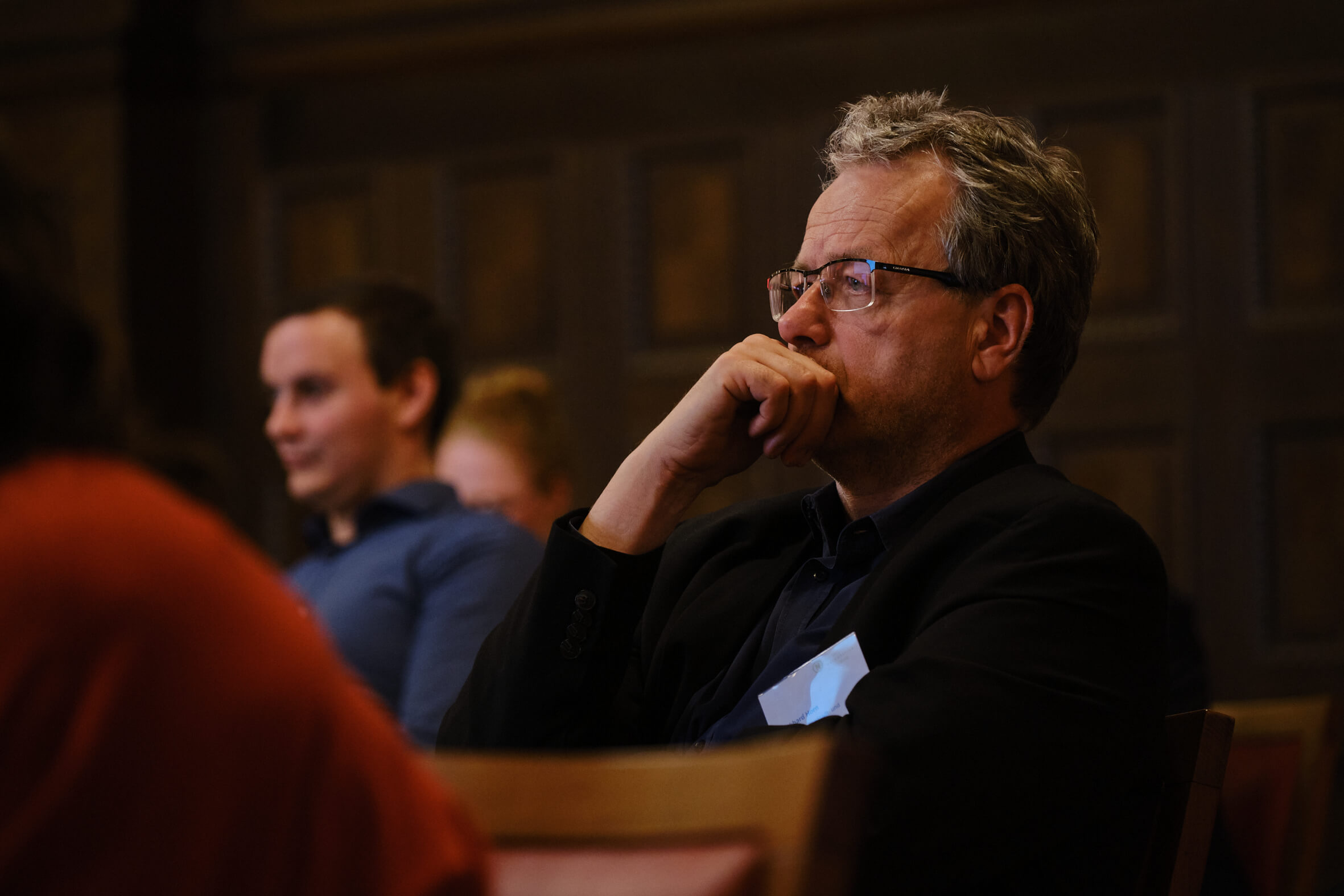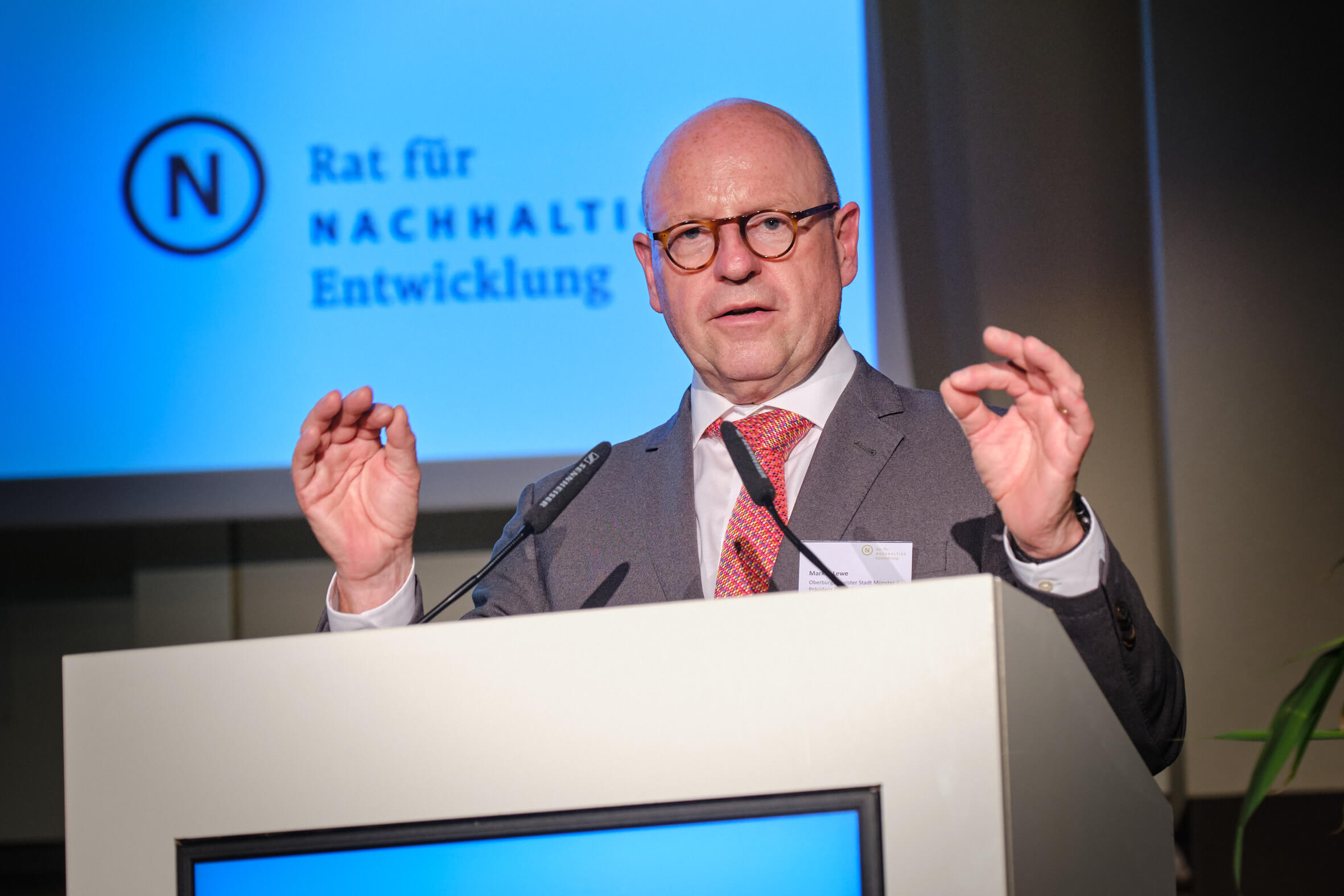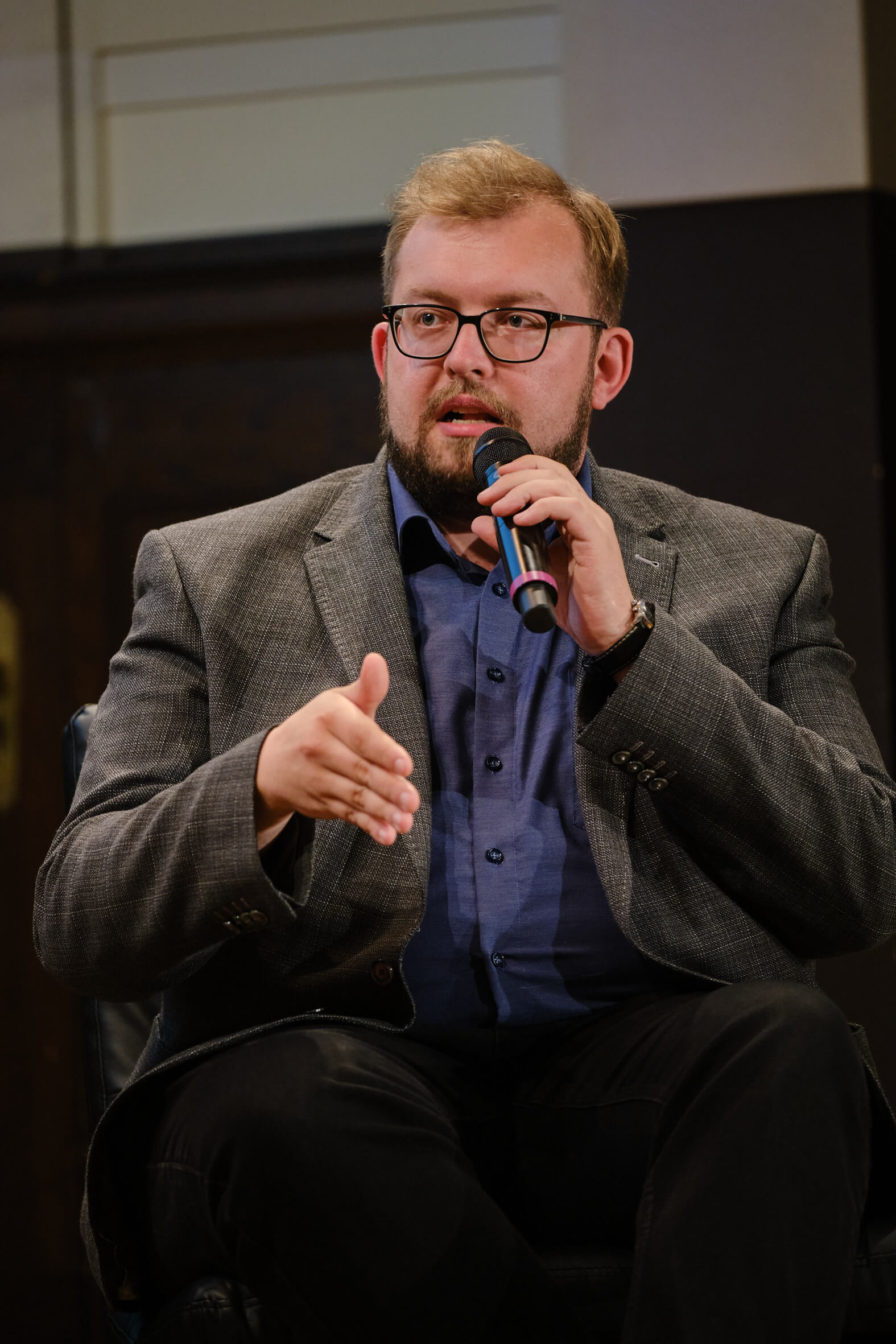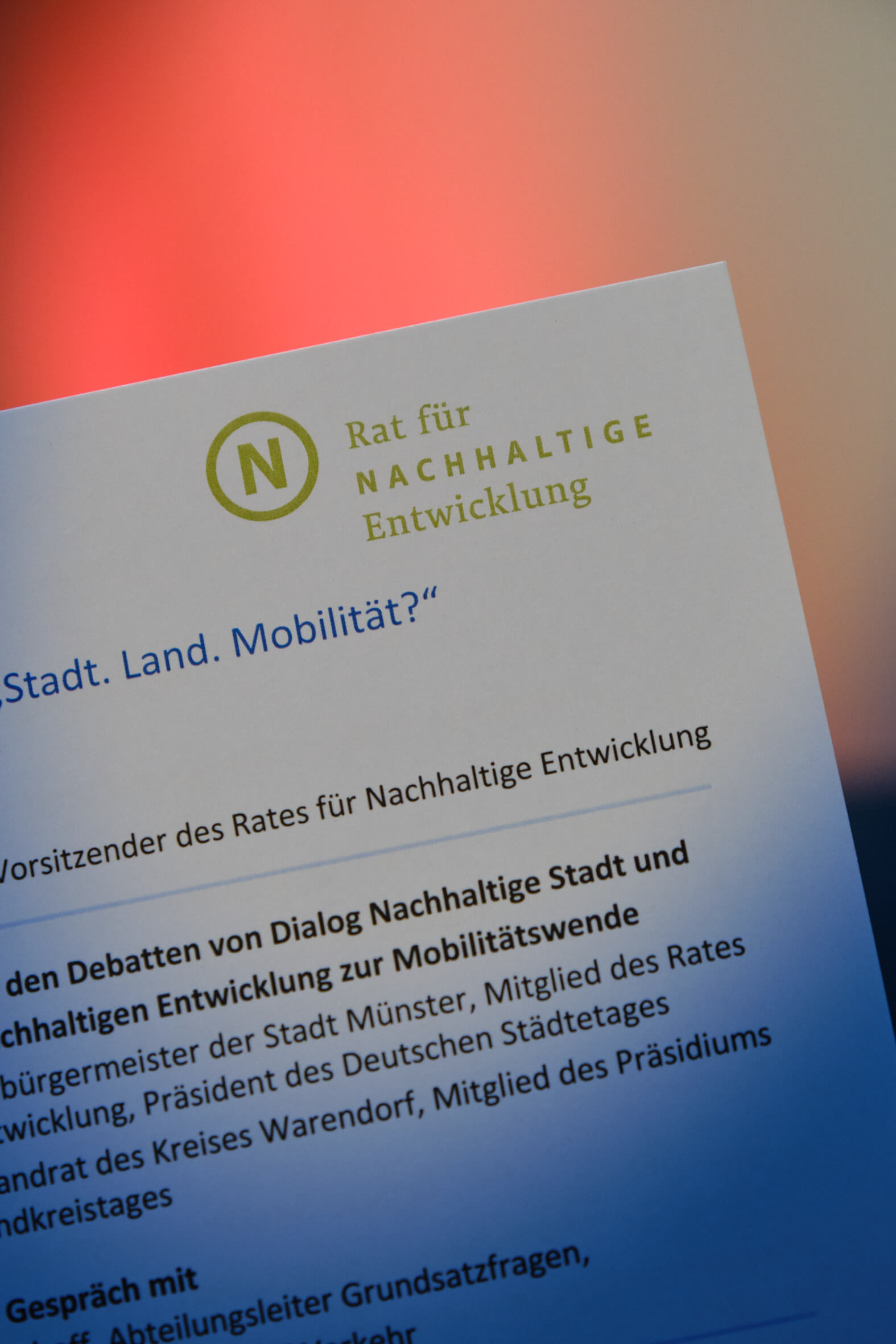Sustainability needs responsible leadership – which is exactly what the mayors of over 40 German cities involved in the “Sustainable City” dialogue stand for. This dialogue has been facilitated by the German Council for Sustainable Development (RNE) since early 2010.
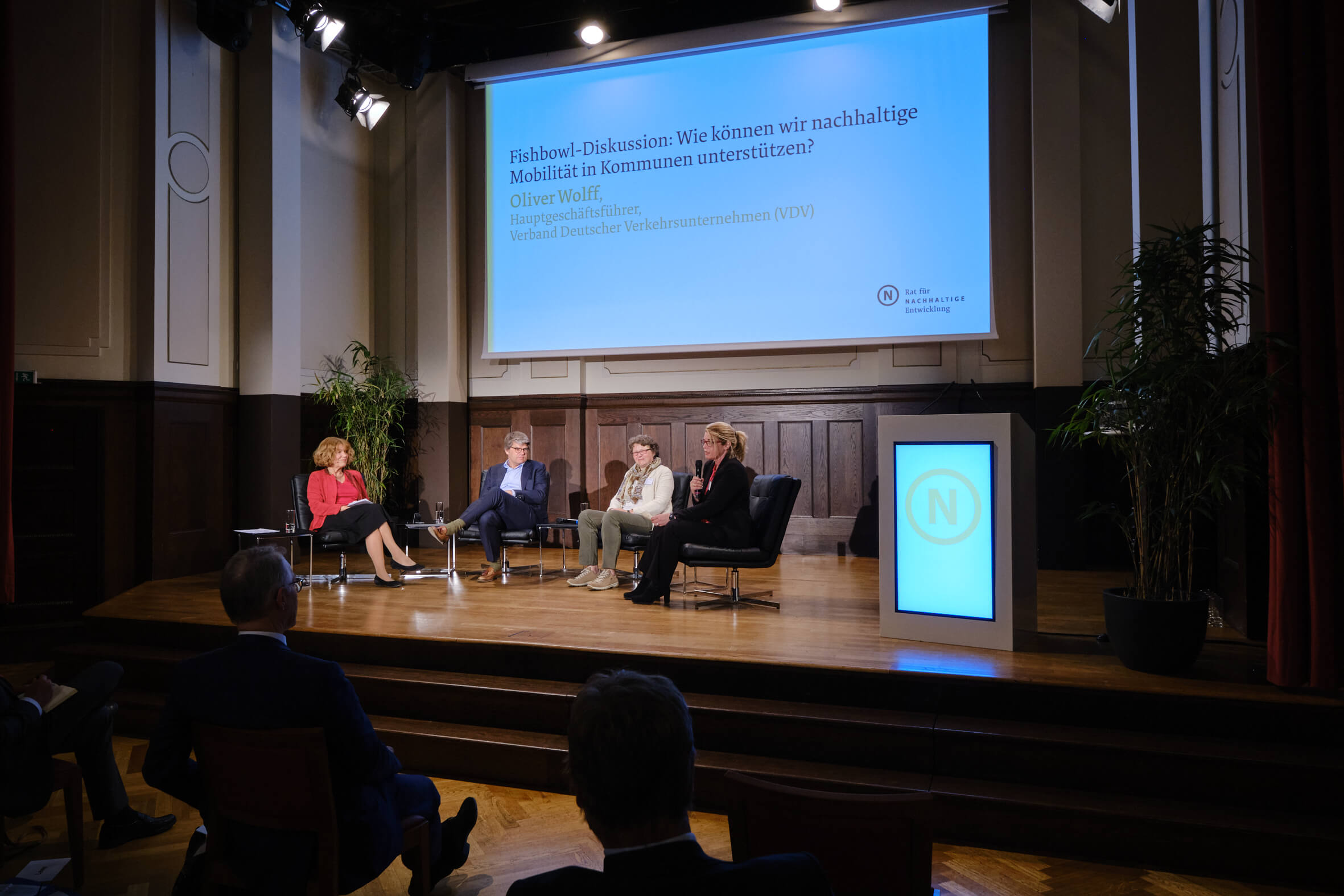
On 31 May 2022 the RNE organised a parliamentary evening with the theme “City. Country. Mobility?”, which saw members of the Bundestag, mayors and district administrators discuss the results of the “Sustainable City” dialogue and the district administrators’ dialogue on the mobility transition. Photo: André Wagenzik © RNE
For the participating mayors, sustainability is a top priority. As political representatives, they are making a special effort towards sustainable development in their cities and communities. Through this dialogue format, they exchange insights on strategies and measures for sustainable development. They provide key impetus for municipal sustainability policy and sustainable urban development at a national level through their joint recommendations and policy papers. The RNE continues to facilitate this dialogue process. The primary focus of the joint dialogue is normally the annual meetings. These non-public discussions provide a framework for engaging in an open and constructive exchange of ideas around this topic as well as the challenges of implementation. Joint resolutions are discussed and the groundwork is laid for the dialogue’s ongoing work. Regular parliamentary evenings are also held, bringing numerous members of the Bundestag, government representatives and mayors together in Berlin.
Mayors for sustainable development in municipalities
The following mayors are participants in the Sustainable City dialogue:
- Mayor Dr Pascal Bader, Kirchheim unter Teck
- Mayor Uli Burchardt, Konstanz
- Mayor Gunter Czisch, Ulm
- Mayor Katja Dörner, Bonn
- Mayor Stefan Fassbinder, Greifswald
- Mayor Mario Hecker, Kalletal
- Mayor Jürgen Herzing, Aschaffenburg
- Mayor Martin Horn, Freiburg
- Mayor Burkhard Jung, Leipzig
- Mayor Claudia Kalisch, Lüneburg
- Mayor Dr Ulf Kämpfer, Kiel
- Mayor Tobias Kascha, Wernigerode
- Mayor Dr Stephan Keller, Düsseldorf
- Mayor Sibylle Keupen, Aachen
- Mayor Dr Matthias Knecht, Ludwigsburg
- Mayor Marcus König, Nürnberg
- Mayor Thomas Kufen, Essen
- Mayor Markus Lewe, Münster
- Mayor Jörg Lutz, Lörrach
- Mayor Dr Peter Lüttmann, Rheine
- Mayor Alex Maier, Göppingen
- Mayor Dr Frank Mentrup, Karlsruhe
- Mayor Belit Onay, Hannover
- Mayor Boris Palmer, Tübingen
- Mayor Katharina Pötter, Osnabrück
- Mayor Dr Daniel Rapp, Ravensburg
- Mayor Dieter Reiter, Munich
- Mayor Henriette Reker, Cologne
- Mayor Dr Eckhard Ruthemeyer, Soest
- Mayor Prof. Dr Uwe Schneidewind, Wuppertal
- Mayor Dr Thomas Spies, Marburg
- Mayor Andreas Starke, Bamberg
- Mayor Bernd Tischler, Bottrop
- Mayor Eva Weber, Augsburg
- Mayor Thomas Westphal, Dortmund
- Mayor Dr Manfred Wilde, Delitzsch
- Mayor Dr Eckart Würzner, Heidelberg
Previous recommendations and positioning from the dialogue
The “Sustainable City” dialogue develops recommendation papers for the federal government on various aspects of local sustainability.
With 11 proposals on financing sustainable development in municipalities, mayors from the “Sustainable City” dialogue issued a wake-up call to the German government. During the controversial debates around the federal budget, they advocated, among other things, for a reform of the debt brake, a change of strategy on funding programmes, the mobilisation of private capital for the transition and more freedom for local governments to organise their own taxes and duties. Germany’s fiscal policy, they argued, is facing enormous structural challenges, and it is time they are finally resolved.
“Giving the mobility transition wings!” This was the slogan of the “Sustainable City” dialogue on 22 September 2021, attended by 25 mayors. The result was a published appeal to the future federal government, which set out the following demands and explained how they would contribute to a socially and environmentally just mobility transition as well as more liveable municipalities. See photos of the event in the gallery at the bottom of this page.
- Implement and offset carbon pricing with a steering effect
- A sustainable federal law on mobility instead of the outdated Federal Transport Infrastructure Plan
- At long last, abolish subsidies that are harmful to the climate and the environment
- Allow cities more flexibility – on 30 kph speed limits, bicycle lanes, parking, etc.
- Provide sufficient financing for municipalities and reduce the red tape around subsidies
- Improve the framework conditions for new forms of mobility
On 31 May 2022 the RNE organised a parliamentary evening with the theme “City. Country. Mobility?”, which saw members of the Bundestag, mayors and district administrators discuss the results of the “Sustainable City” dialogue and the district administrators’ dialogue on the mobility transition.
The mayors have submitted several papers to the federal government with recommendations on how it can counteract the increasing lack of affordable housing while land is in short supply and how sustainable, circular and resource-efficient construction can become the norm. In so doing, they are building on the work of the government commission on “Sustainable building-land mobilisation and land policy” and recommending that the government coherently and single-mindedly implement its own sustainability strategy for this. The mayors are calling for urban development that benefits the common good, focusing on brownfield development conceived from a human perspective.

- 06/14/2018
Mehr Nachhaltigkeit der Bauland- und Bodenpolitik: Beschluss vom 14. Juni 2018
Im gemeinsamen Beschlusspapier „Mehr Nachhaltigkeit der Bauland- und Bodenpolitik“ fordern 18 Oberbürgermeisterinnen und Oberbürgermeister die Ursachen des Wohnraummangels anzugehen und langfristig tragbare Lösungen zu entwickeln.
In this brochure entitled “Making the energy transition a success story with strong municipalities” (in German only) from 2013, the mayors set out recommendations on how the energy transition can succeed and can be delivered and supported in and through local authorities. It offers practical examples from their municipalities.
In this statement to the State Secretaries’ Committee for Sustainable Development, co-authored with the “Sustainable City” dialogue, the RNE highlights the fundamental importance of cities in the transition and explains where their potential and challenges in this process lie. The mayors set out specific demands for support in the areas where local authorities need it: namely, sustainability management in particular. Finally, they emphasise the role of the Joint Action for Sustainable Development in this transformation process and the role of the municipalities in it.
In the position paper “In our hands – Strategic cornerstones for sustainable development in municipalities – Positions and ideas from the participating mayors in the “Sustainable City” dialogue” (in German only), the “Sustainable City” dialogue explains its own role, what it stands for, why it is speaking out and how the participating mayors envisage and wish to see sustainable development in municipalities.
Further links
Photos of the parliamentary evening on the theme of “City. Country. Mobility?” on 31 May 2022
Anna Lotta Nagel
German Council for Sustainable Development
Project Manager
anna.nagel@nachhaltigkeitsrat.de
+49 (0) 30 338424-534
Office c/o GIZ GmbH
Potsdamer Platz 10
10785 Berlin
